|
STUART - GEORGE WASHINGTON - LANSDOWNE - PAGE
2
|
Moral Metamorphosis |
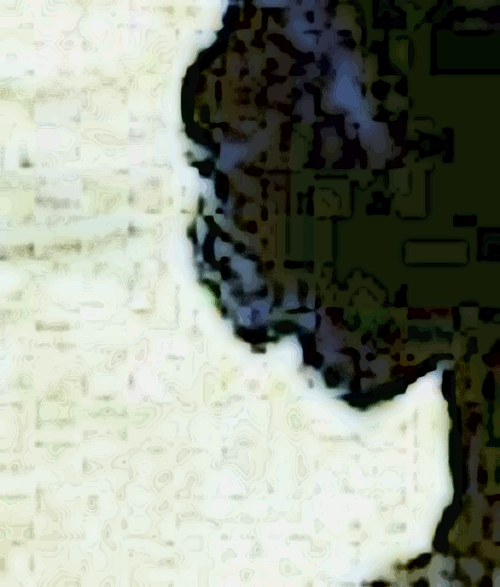
John Washington |
- John Washington (1633–1677), who was born in 1633 in Tring, Hertfordshire, England, arrived in the Colony of Virginia in 1657 after being shipwrecked.
- He was the son of Lawrence Washington and the former Amphillis Twigden.
- He was the first member of the Washington family to live in North America and was a paternal great-grandfather of George Washington, the first president of the United States.
|
During the English Civil War, in 1643 Parliamentary Puritans stripped the royalist Rev. Washington of that clerical position, alleging misconduct that was disputed. Rev. Lawrence Washington then became vicar of an impoverished parish in Little Braxted, Essex, where he died in January 1652.
(Wikipedia)
|
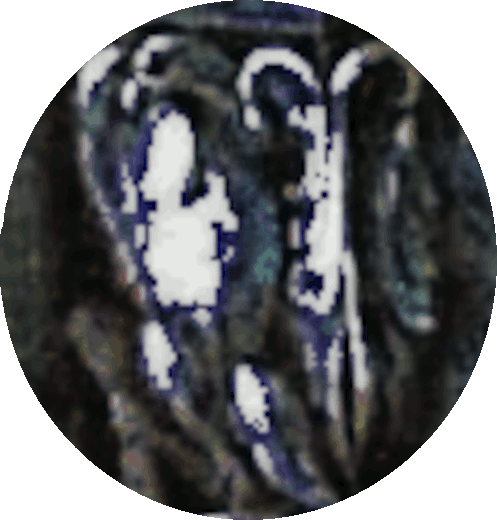
Master's Mate |
- John Washington's father died when he was 19 and he was apprenticed to a
London merchant, with the help of relatives, where he learned
about colonial trade.
- He served as Master's Mate on board a tobacco ship when he first came to Virginia.
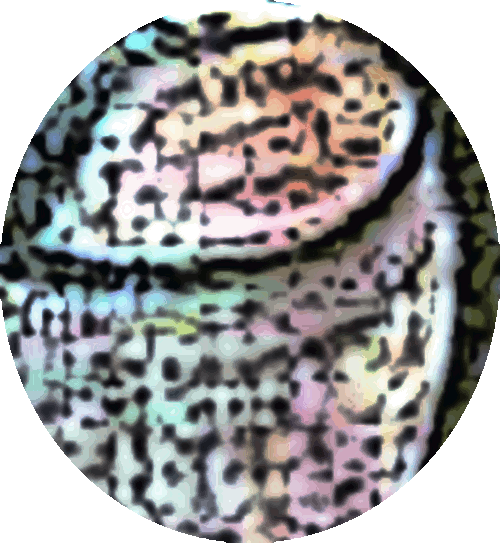
Shipping barrel |
-
In 1656, John Washington invested with Edward Prescott in a merchant ship which transported tobacco from North America to European markets.
- He secured tobacco contracts in Europe, after joining Prescott's ship,
Sea Horse of London, in Denmark, and sailed as second mate for the Colony of Virginia.
- A storm on February 28, 1657, caused the ship which was fully laden with tobacco for the return journey,
to run aground in the Potomac River.
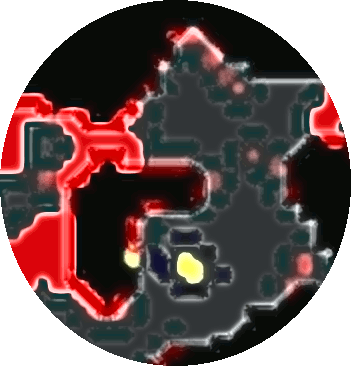
Smelling roses |
- Although the vessel was repaired
and he wasn't injured, John Washington decided to remain in the colony.
- Approximately 1658, Washington was married to Anne Pope, the
daughter of Colonel Nathaniel Pope who gave the couple a wedding gift of 700 acres (2.8
km) on Mattox Creek, as well as a loan of 80 pounds for startup expenses, which he forgave in his will, which was filed in April 1660.
- They had two sons;
Lawrence Washington (1659-1698) and John Washington Jr. (1660–1698) and as well as a daughter named Anne
Washington (1660–1697).
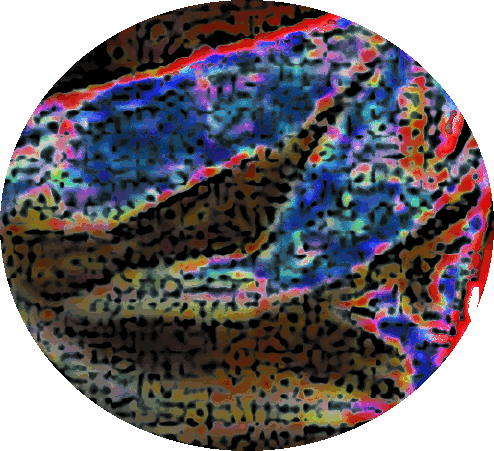
Merchant goods to
the colony |
- John Washington (1633–1677) had a younger brother, Lawrence
Washington, who became a merchant
and married Mary Jones of Luton in Bedfordshire in England.
- Lawrence also emigrated from England to the Virginia Colony, where he died
but not before having a son, also named John Washington
(Chotank), as in King George County, Virginia.
- John
Washington (Chotank) raised the children of his cousin
Lawrence Washington (1659-1698).
- Lawrence is the paternal
grandfather of George Washington and father of Augustine
Washington (1693-1743) (George's father).
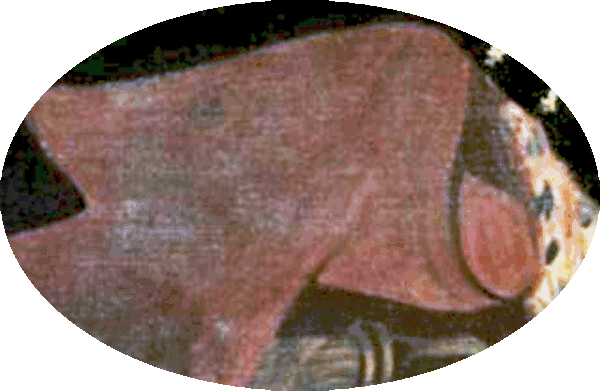
Roll it up |
- John Washington (1633–1677) was of the planter class and was also a merchant, politician and military officer.
- He served in the Virginia militia and owned several slave plantations.
- It's not clear how he received so many properties, but you
have to assume everything was wide open in those years, he
probably liked it and staked it out.
- Washington also served for many years in the House of Burgesses, representing Westmoreland County,
Virginia.
|
For happily the Government of the United States, which gives to bigotry no sanction, to persecution no assistance requires only that they who live under its protection should demean themselves as good...
(George Washington, 1790)
|
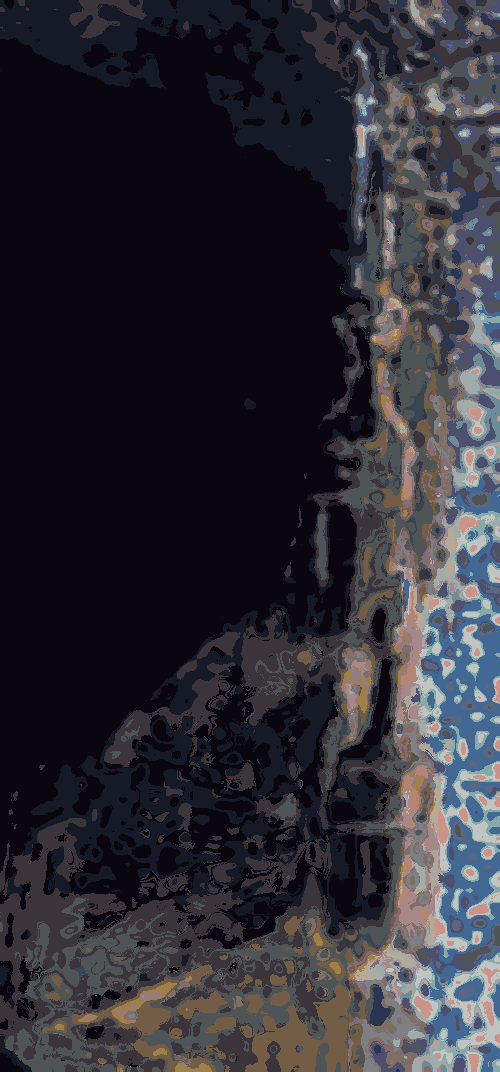
Slave |
- John Washington, George Washington's,
great-grandfather, became a successful
planter and depended on the labor of black slaves and white indentured servants
(who came from places like Ireland and Scotland).
- What is
the differnce between a slave and an indentured servant,
usually the servant is freed in 7 years.
- Washington cultivated tobacco as a commodity crop as well as kitchen crops needed to support his household and workers.
- By 1668, John Washington was growing tobacco and had plantation holdings of 5,000 acres
and by the time he died, he had more than 8,500 acres (34 km) of land.
-
Additionally, George Washington's father,
Augustine, third-generation English colonist, held slaves and had them cultivate tobacco on his several plantations, as his ancestors had done.
|
I long to hear the story of your life, which must captivate the ear strangely.
(Shakespeare, The Tempest)
|
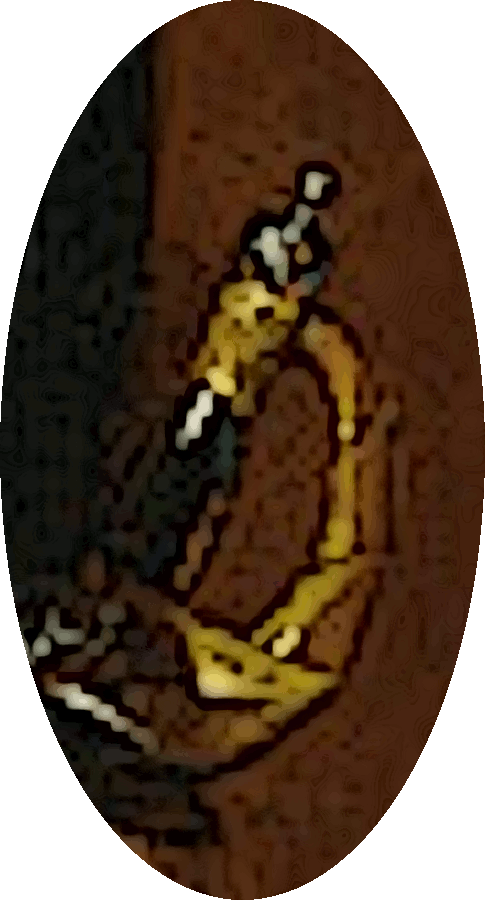
Sword |
-
In 1672,
John Washington received promotion to lieutenant colonel in the local militia, as relations with Native Americans again became troubled.
- For his efforts suppressing Native Americans, the Susquehannock gave
Washington the nickname of 'Town Destroyer.'

Totem pole |
- Eighty years
later, grandson George Washington was also bestowed the same
nickname by the Seneca for his actions in the French-Indian
War.
|
What seest thou else
In the dark backward and abysm of time?
(Shakespeare, The Tempest)
|

Washington Arms |
- It was in Northamptonshire in 1592, that ancestor Lawrence Washington of Sulgrave Manor had confirmed upon him, the coat of arms that consisted of a silver background with two red bars and three red mullets.
- George Washington had undoubtedly
witnessed evidence of the use of the family coat of arms on
items such as tombstones of the Washington family.
|
These details were confirmed to George Washington in a letter dated December 7, 1791 from Sir Isaac Heard, Garter Principal King of Arms of the College of Arms in London in which he also enclosed a copy of the heraldic coat of arms design. In his reply to Heard, Washington noted that "the arms are the same that are held here by the family.
(mountvernon.org)
|
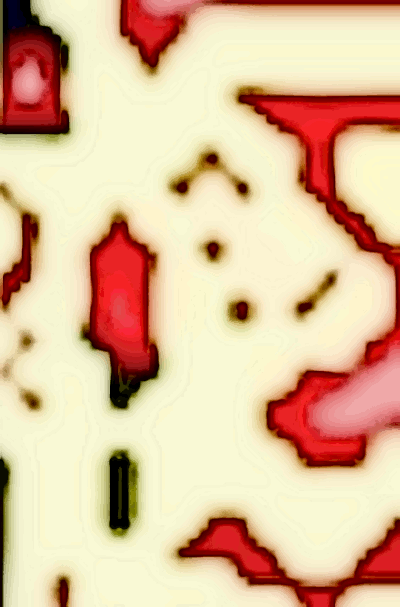
Arms everywhere |
- Washington loved the family crest so much he placed it
everywhere; on items such as silverware, wax seals, horse-drawn carriages, walking sticks, and interiors of buildings.
- His ancestry was English aristocracy but one of his maternal ancestors was of Huguenot extraction, so
there was French there too, although he chose to ignore that.
- At Mount Vernon, the coat of arms was featured in the middle of the wooden fireplace mantel in the front parlor.
|
The coat of arms was even featured on the livery uniforms of Washington’s servants, a common practice amongst wealthy planters prior to the Revolution.
(mountvernon.org)
|
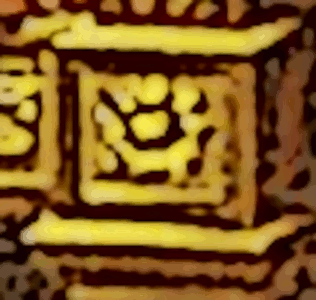
Cornerstone |
- The Washington family was prominent in colonial America
and attained great political and economic eminence, especially
in the Colony of Virginia.
- They were planters and owned
several highly valued plantations and made most of their money
in tobacco farming.
- Besides George, there was Bushrod
Washington (1762-1829), his nephew, who was an Associate
Justice of the Supreme Court of the United States and
inherited George Washington’s papers as well as Mount Vernon.
|
But he looked directly at them and said, “What then is this that is written: “‘The stone that the builders rejected has become the cornerstone’?
(Luke 20:17)
|

Purple Heart |
- Lasting tributes to George Washington in the form of the continued design influence of the family coat of arms can be found in both the District of Columbia and in Virginia.
- The flag of the District of Columbia employs the design from the coat of arms.
- The Purple Heart Medal contains the shield of the Washington coat of arms at the top of the pendant.
|
Various churches and academic institutions such as Christ Church Episcopal in Alexandria, Virginia and George Washington University in the District feature versions of the coat of arms as does Washington and Lee University in Lexington, Virginia. The coat of arms also appears in military heraldry.
(mountvernon.org)
|

Family home |
- Prior to 1718, the first section of the family home
was constructed in Westmoreland County, Virginia, at the confluence of Popes Creek and the Potomac River
by his paternal great-grandfather, John Washington.
- His father enlarged it between 1722–1726 and George added on to it by the mid-1770s, making a ten-room house known as
'Wakefield' which burned down on December 25, 1779 and was
never rebuilt.

Freemason wand |
- The earliest records of American Masonic lodges are in
Philadelphia.
- In 1732, Boston’s St. John’s Lodge
was duly constituted by the Grand Lodge of England and remains
the oldest lodge in North America.
- Freemasonry is fundamentally a self-improvement, volunteer association that teaches moral, intellectual, and spiritual lessons through three initiation ceremonies.
- Freemasonry grew popular within cities as political, commercial, and intellectual elites gathered within a lodge
with aristocratic, and later royal patronage, and evolved into the preeminent fraternal organization of the
18th-century.
|
Freemasonry was, and remains, open to all men of good
reputation who profess a belief in Deity (referred to
in lodge as The Supreme Architect of the Universe). By
the 1750s a variety of Christian and non-Christians,
European, and non-European men, and a few women, were
members. (mountvernon.org)
|

Missing cherry tree |
- His father died in 1743 when he was 11 and
left the bulk of his estate to George's half-brothers,
including Mount Vernon which he left to Lawrence Washington
(1718-1752).
- Lawrence's
infant daughter, to whom he originally bequeathed Mount
Vernon, died before reaching adulthood.
|
In 1754 George Washington leased the Mount Vernon estate from Lawrence’s widow, Ann Fairfax Washington, who held a life title.
(mountvernon.org)
|
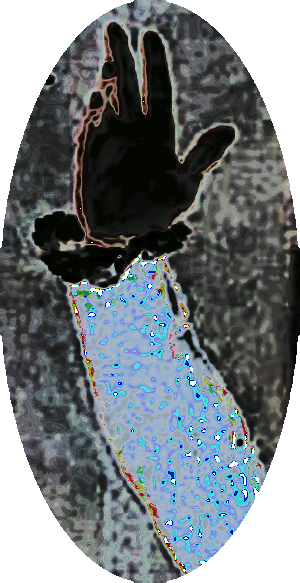
Gloves on |
- Washington inherited the more modest Rappahannock River
plantation but this was not enough to maintain his status in
the Virginia gentry.
- As he grew, Washington was groomed in the morals, manners, and knowledge requisite for an 18th century Virginia gentleman,
although he had only a grade school education.
|
God has given you one face, and you make yourself another.
(Shakespeare)
|
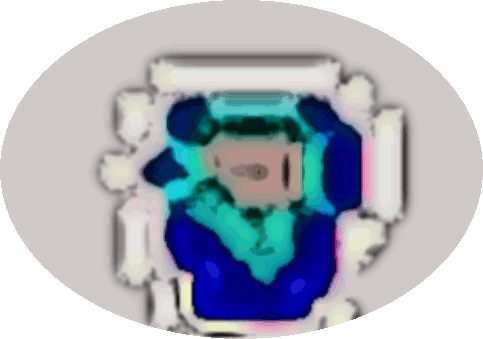
Surveyor |
- Washington's half-brother Lawrence suggested that he enter the British
Navy but his mother rejected the idea.
- Instead, Washington was trained as a land surveyor, a profession of considerable importance in colonial Virginia.
- Due to his connections with Lawrence
and his wealthy in-laws, he became a surveyor at Lord Fairfax's extensive Northern Neck proprietary.
- He was appointed surveyor of Culpeper County in 1748.
|
Washington’s surveying career provided him with the respectability that an ambitious Virginian needed to advance socially.
(mountvernon.org)
|
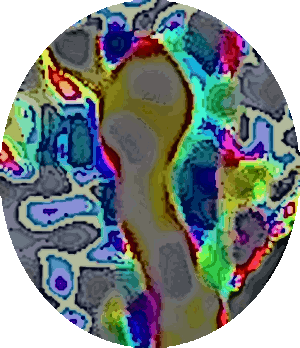
Land speculation |
- Washington gained familiarity with the backcountry and developed frontier survival skills.
- He also received substantial fees for surveying,
and he also discovered firsthand how to successfully land speculate.
- By 1751 George Washington had accumulated almost as many acres of fertile soil in the Shenandoah as his half-brother Lawrence had at Mount Vernon
(who acquired it through inheritance).
|
And many of those who sleep in the dust of the earth shall awake, some to everlasting life, and some to shame and everlasting contempt.
(Daniel 12:2)
|
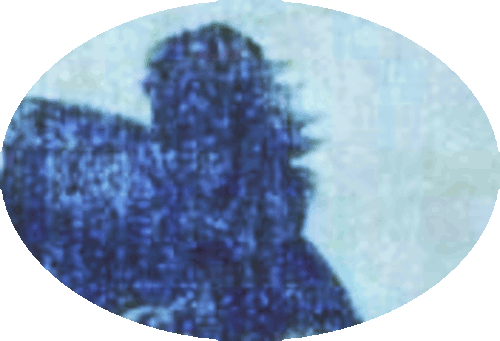
Many blessings |
- George Washington enjoyed an impressive physique and the blessings of good health.
- He survived a case of smallpox while in the West Indies, thus acquiring immunity to the disease that claimed the lives of many colonial Americans
including his brother, who succumbed to the disease in 1752.
|
For while bodily training is of some value, godliness is of value in every way, as it holds promise for the present life and also for the life to come.
(1 Timothy 4:8)
|
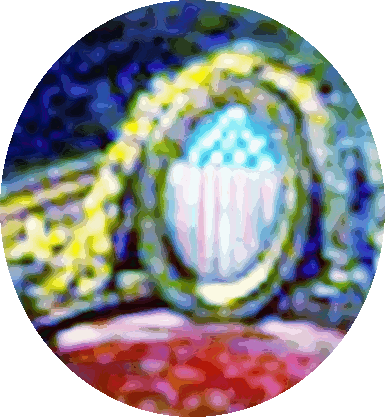
Freemason
neutrality? |
- During the revolutionary era, Freemasons of note included George Washington, Benjamin Franklin, James Otis, and Paul Revere.
- While individual Freemasons actively participated in the American Revolution, Freemasonry, as an institution as well as its local lodges, remained politically neutral.
- Washington, 20, joined Freemasonry in the Lodge at Fredericksburg, Virginia, when he received the first degree of Entered Apprentice on November 4, 1752.
- He paid the lodge two pounds and three shillings to join.
- Wigs on.
|
Ten days after turning 21, on March 3, 1753, he was passed to the second degree of Fellowcraft. On August 4, 1753, he was raised to the third degree of Master Mason. The lodge’s surviving minute book records Washington attending only two more meetings: September 1, 1753, and January 4, 1755. (mountvernon.org)
|
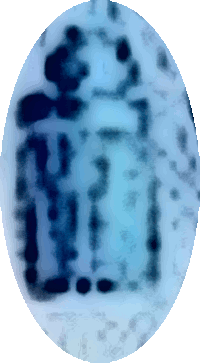
Masonic lodge |
- Masonic lodges are dedicated to Saint John the Baptist and Saint John the Evangelist,
brother of Christ, who together, represent the patron saints of Freemasonry.
-
A spiritual foundation built on the man who came before
Christ, the 'forerunner,' not on Christ.
- The Simon Magus
'pathfinder' story.
- You can bet if 4runner (1984) is
there, pathfinder (1986) is not far behind.
- So what's
next Tacoma and Frontier?
- Most Freemasons today
seem to have no clue why the John's are their patron saints
(and they were both good men).
|
Masonry claims that it does not offend a Christian’s belief about Jesus Christ. For example: “We do not say to Christians that Christ was a mere man, whose life’s story is only a revival of similar older [pagan] stories. To do any of these things would be irreverent. We utter no such words.”But Masonry does teach that Jesus Christ was merely a man. (jashow.org)
|

Masonic points |
- It is not a symbol, but simply a mark of abbreviation.
- While
some of the Freemason's beliefs are true, such as all specific dogmas about Christ are in error
and we should never deify him.
- And that religious orthodoxy is wrong and all their
tenets, legends, allegories and dogmas should be eliminated is
also very true.
- But to claim that the unique nature and mission of Christ is denied by Hindus, Buddhists, Muslims and Jews
is totally untrue.
- Because Jesus was born a Jew, and
educated by Hindus, Buddhists and Jews and a few Egyptians
too, and he is in all of us.
- And there is not a person in the world who doesn't have
Christ (Christos) consciousness inside them, waiting for the Kundalini to
rise.
|
But none of the Masonic teachings about Christ agree with what Jesus taught about Himself and with what the Church has maintained for 2,000 years. If Masonry does not even respect the teachings of Jesus, how can it claim to be a tolerant religion? (jashow.org)
|

Religious and
philosophical views |
-
Washington rarely discussed his religious and philosophical views.
- He attended the
lower ego Anglican Church (Church of England), a type of
Protestant, through all of his life, and was baptized as an infant.
- Washington's great-great-grandfather, Lawrence Washington (1602–1652), was an Anglican rector in England.
- WASP, the prostitute's
daughter, but still the same father.
- A lot of Protestants don't know they came out
of the Catholic Church.
|
Now when Jesus saw a crowd around him, he gave orders to go over to the other side. And a scribe came up and said to him, “Teacher, I will follow you wherever you go.” And Jesus said to him, “Foxes have holes, and birds of the air have nests, but the Son of Man has nowhere to lay his head.” Another of the disciples said to him, “Lord, let me first go and bury my father.” And Jesus said to him, “Follow me, and leave the dead to bury their own dead.”
(Matthew 8:18-22)
|
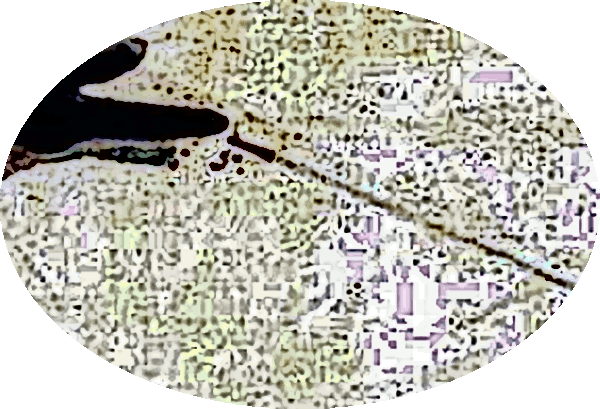
King James version |
- Washington loved the King James version of the Bible
and quoted from it often.
- Freemasons don't believe in
the New Testament, they're stuck in the Old Testament, the law
(which is why so many Masons are police officers, military,
etc.)
- London Bridge is falling down and so are the walls.
|
Henry VIII created the Church of England as a religious body unique from the Roman Catholic Church in order to achieve his goal of divorcing his first wife, Catherine of Aragon, in an attempt to remarry and father sons to continue his dynasty.
(study.com)
|

Paid
up pew sitters |
- Following Jesus may require leaving family behind
especially if they are pew sitters and worshiping YHWH.
- Washington paid for pews at several churches
and the church pastor claimed he never saw a more devoted
attendee.
- Washington's personal diaries indicate that he did not regularly attend services while home at Mount Vernon, spending most Sundays writing letters, conducting business, fox-hunting, or doing other activities.
- When he was traveling, he made a show at many churches from
Catholic to Quaker.
|
Now great crowds accompanied him, and he turned and said to them, “If anyone comes to me and does not hate his own father and mother and wife and children and brothers and sisters, yes, and even his own life, he cannot be my disciple. Who-ever does not bear his own cross and come after me cannot be my disciple.”
(Luke 14:25-27)
|
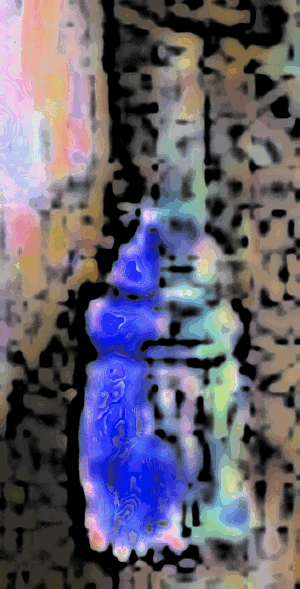
Providence broom
sweep |
- Throughout his life, Washington's personal letters and public speeches
often referred to 'Providence,' a term for God used by both Christians and deists.

Eye of Providence |
- The Eye of Providence is a symbol recognized by Freemasons everywhere as a representation of the watchful care of the Supreme Architect.
|
Many a good hanging prevents a bad marriage.
(Shakespeare)
|
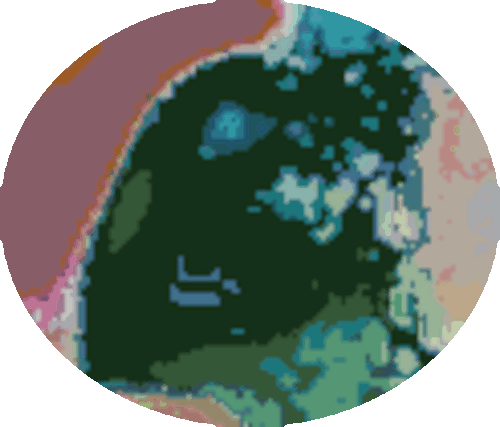
Peppers his works |
- A deist is someone who believes in a higher power, a single
God who created the world but does not influence events.
-
The idea that God winds up the world like a clock and lets it
tick away.
-
How can anyone really believe that the Almighty does not
influence events?
- Divine Providence and Deism in the Declaration of Independence.
|
Deism
is the philosophical position and rationalistic theology that generally rejects revelation as a source of divine knowledge and asserts that empirical reason and observation of the natural world are exclusively logical, reliable, and sufficient to determine the existence of a Supreme Being as the creator of the universe.
(Wikipedia)
|
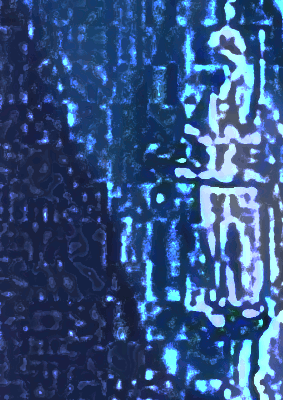
Soldier |
- Washington registered for military service in 1752
after he persuaded the Virginia governor to appoint him to his deceased brother's adjutancy,
gaining a commission as a major.
- He later was involved
in training militiamen.
- In October 1753, Washington volunteered to investigate reports of French encroachments on Virginia's western frontier that threatened the interests of the colony’s land speculators.
- Washington received his first popular recognition in January
1754, when accounts of his detailed journey were published.
|
In 1752 Washington made his first land purchase, 1,459 acres along Bullskin Creek in Frederick County, Virginia. This act inaugurated the second and more profitable phase of his cartographic career, in which he assumed the role of land speculator. Over the next half century Washington would continue to seek out, purchase, patent, and eventually settle numerous properties.
(loc.gov)
|
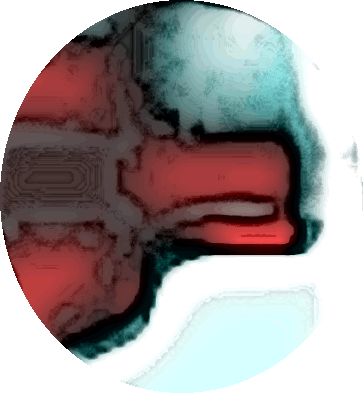
Red Bird Hollow |
- In May 1754, Washington, 22, became commander of the Virginia Regiment, raised to oppose the French in the Ohio Valley.
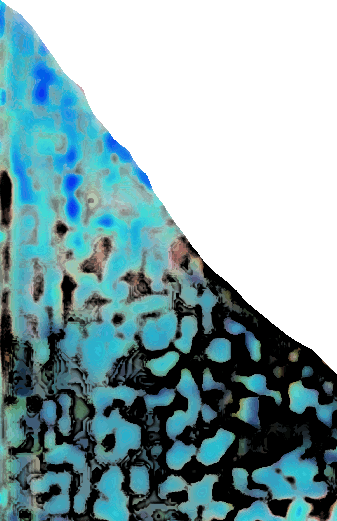
Youghiogheny River
waterfall |
- Ohiopyle Falls in southwestern Pennsylvania was first
visited in 1754 by George Washington, a 22-year old lieutenant
colonel in the command of the British.
- If it wasn't for the location of a waterfall, we might not have ever heard of our most famous Founding Father.
- On his second trip to the area his mission was to protect a group of settlers attempting to build a fort near the
forks of the Ohio (present-day Pittsburgh).

Youghiogheny River
rapids |
- Washington's plan was to make his way over land through
Pennsylvania's Laurel Highlands to the Youghiogheny River, and
from there, travel by boat to Pittsburgh.
- When Washington arrived
at the banks of the river, he saw a large waterfall with
multiple rapids.
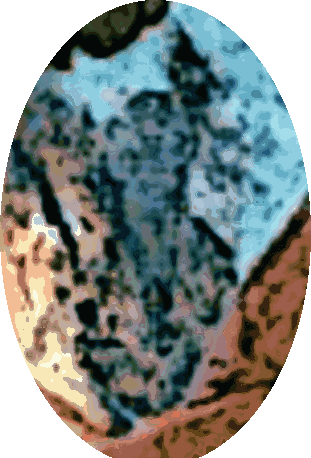
Travel west by land |
- Washington decided that he couldn't risk taking a boat along the Youghiogheny River to his destination
and he returned with his 40 troops to the main road to continue west by land.
- Soon after leaving the river, Washington learned there
was a small band of French soldiers nearby, led by Joseph Coulon de Villiers de Jumonville.
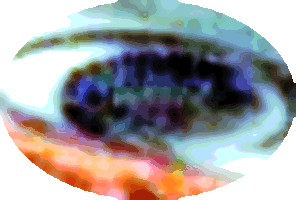
French spies |
- The French claimed it was a peaceful diplomatic mission to demand Washington and the British to leave the area.
- Half King, a friendly Indian chief, confided to Washington that they
were spies and were planning to attack the British troops.
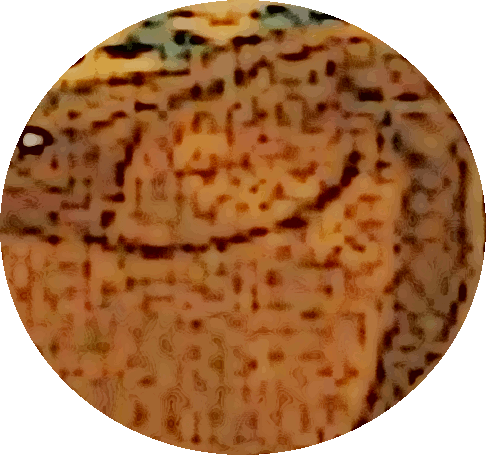
Fort Necessity |
- A few weeks later, the conflict between the French and British escalated when French soldiers, led by Jumonville's brother, attacked Washington and his troops at the hastily built Fort Necessity.
- Here, Washington surrendered his troops for the first and only time in his military career, but the damage has already been done.
- While these small skirmishes on the edge of the Pennsylvania frontier might have seemed unexceptional at the time, it had huge international consequences.
|
O, I have suffered
With those that I saw suffer.
(Shakespeare, The Tempest)
|
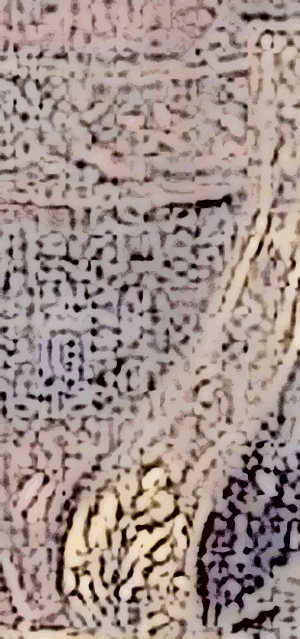
7 Years' War |
- The French and British had been in a Cold War for many years, these were the first shots fired in what became known in the United States as the French and Indian War, and expanded into the world-wide conflict known as the 7 Years' War.
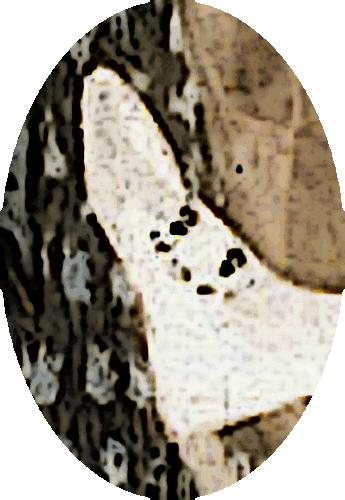
Kick back |
- This war was started by our future president and led to the
first British taxes on the American colonies.
- It could be
considered a form of job security where the fireman starts the
fire.
|
French retaliation for the attack on a small
party across the Alleghenies provided Washington's
first military defeat with the surrender of the
hastily-constructed Fort Necessity in July 1754.
(mountvernon.org)
|
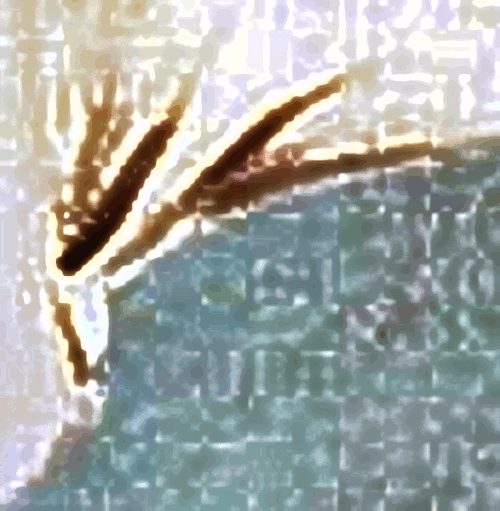
Falls in the way |
- Had Ohiopyle Falls not been along the Youghiogheny River, it's entirely possible that Washingon and his troops would have gone by boat to Pittsburgh, bypassing the French troops, and altering the entire history of American Independence.
- Both the French and British had aligned with their
respective colonists and Native American allies.
-
Washington served under the command of British generals Edward
Braddock and John Forbes, earning a military reputation of
courage and as a commander of forces.
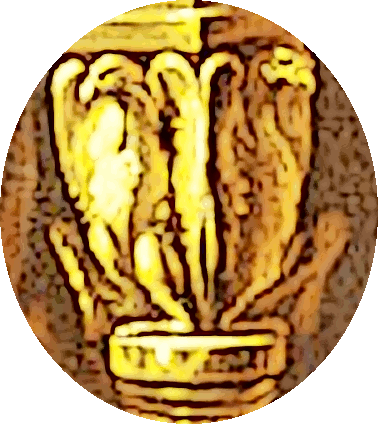
Mount Vernon trophy |
- His half-brother Lawrence
Washington (1718-1752) died in 1752
and George, 20, eventually (after Lawrence's widow died) inherited one of Virginia’s most prominent estates, the Washington family lands which became Mount Vernon.
- In 1754 he was able to rent Mount Verson from Lawrence's
widow who had a lifetime lease on the property.
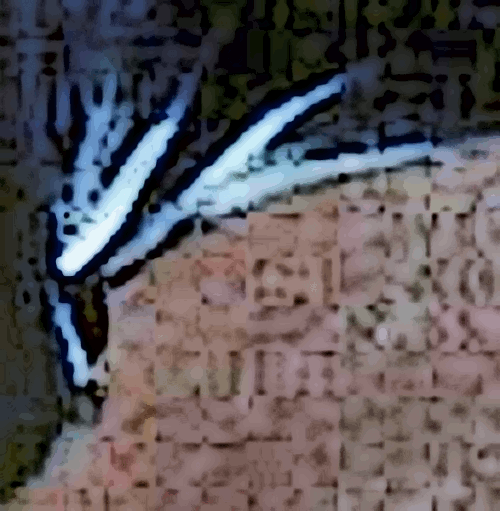
Land divide |
- In 1754, Lieutenant Colonel George Washington's
commanded the fledgling Virginia Regiment.
- Lieutenant Governor Dinwiddie issued a proclamation to encourage enlistment in the local militia for the war against the French.
- In addition to their pay, those who enlisted were offered a share in two hundred thousand acres west of the Ohio River.
- At the conclusion of the 7 Years War, Washington was
optimistic that the land grants would be distributed right
away.
- However, the Royal Proclamation of 1763 forbade colonial governors from issuing land grants west of the Allegheny Mountains.
|
Unfortunately for the men who fought under Washington in the Braddock and Forbes expeditions against the enemy at Fort Duquesne, they were not to see these bounty lands until more than twenty years had passed, during which time Washington led the struggle to secure their title.
(loc.gov)
|

Gunfire
|
- The next year in 1755, as an aide to Gen. Edward Braddock,
Washington escaped injury
after four bullets ripped his coat and two horses were shot from under him.
- It was during this period that Washington developed a
resentment of the British officials because they denied him a
regular officer army commision that he desired and felt he
earned, for all his contributions with the provincial troops
during the war.
- The British military leaders didn't
understand why he was complaining because they felt he was
fighting for himself, his own country.
- But Washington
knew that was hardly the case.
|
Where every something, being blent together turns to a wild of nothing.
(Shakespeare)
|
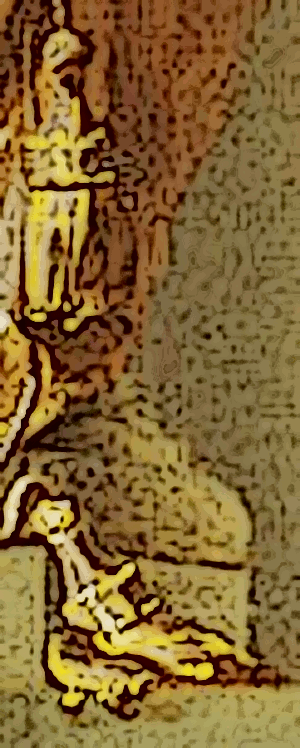
King George's
puppets |
- The British army was an important part of colonial America and contributed to the coming of the Revolution.
- Although the number of British soldiers in North America was meager in the 17th century, this changed with the creation of a standing army and expansion of the British Empire.
- The French and Indian War (1754–1763) brought thousands of regular troops to the colonies, and many remained in America after the war ended.

Cause for
independence |
- British soldiers, known as redcoats, had a tenuous relationship with Indigenous peoples.
- The army became a flashpoint between Britain and the
colonies in the 1760s and with the Boston Massacre, a cause
for independence.
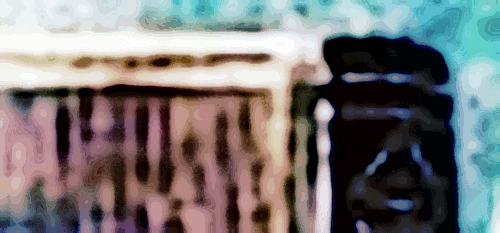
Economic goods |
- In the mid-18th century, about 25 years before the Revolution, the economic
situation in Virginia was ideal and the tobacco trade tripled between the 1720s
and the 1770s.
- Virginia gentry planters did not forsee
that spending more than they earned on their tobacco would
eventually become a huge problem.
- They did not think that
the golden age would end.
- A consumer revolution made buying
manufactured goods affordable to a larger segment of
the population.
|
It was
becoming much more difficult for the gentry to display
their status through their appearance, because it was
becoming easier for the lower classes to make
purchases that gave them an appearance of wealth.
The gentry began to add on to their fathers’ estates,
updating the furnishings to be the most fashionable
and genteel, and importing the latest fashions from
London and Paris, ensuring their appearance would
set them apart from the more common Virginians.
(Celina Morgan, As Worthless as an Eldest Son Could
Be)
|

Glow up |
- In 1758 Washington left military service and returned
to civilian life as a
bachelor, with his prestige enhanced by military experience.
- He also had the potential to increase his land holdings from
bounties granted to the officers and men of the Virginia
Regiment.
|
Their end is destruction, their god is their belly, and they glory in their shame, with minds set on earthly things.
(Philippians 3:19)
|
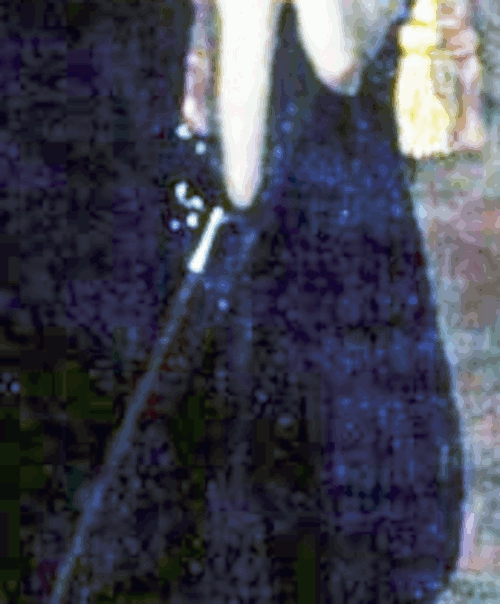
Cary on |
- Sarah 'Sally' Cary Fairfox was the wife of
Washington's close friends, George William Fairfax who she
married in 1747.
- Washington became quite fond of Sally.
|
In 1758, during the French and Indian War, 27 year-old
Washington had just become engaged to Martha Custis.
On September 12th he had written a letter to Sally
Fairfax, the daughter-in-law of the wealthy and
influential Colonel William Fairfax, whom young
Washington had looked up to as a mentor and
benefactor. Good neighbors and friends, young
Washington had spent much time with the Fairfaxes and
Sally at their Belvoir plantation. In this letter,
Washington calls himself a “votary” (or devotee) “to
love” and acknowledges that “a Lady is in the Case.”
He goes on to describe “the recollection of a thousand
tender passages” he wishes he could forget, and speaks
of a destiny that divides him from the object of his
love.
(mountvernon.org)
|
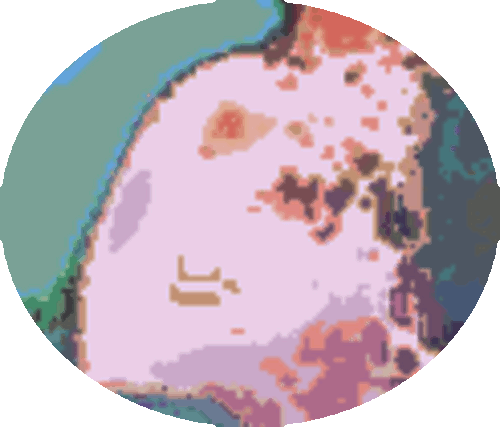
Sweetheart |
- Sally was born in 1730 and was from
one of Virginia's wealthiest families.
- Her husband was
from one of the largest landholding families in Virginia, the
Fairfax's, one that the Washington family
had close connections to for decades.
- George William and
Sally remained childless and many speculate it was an arranged
marriage, a union of convenience which was very common in the
18th-century.
- The same as Washington, who only spoke to
Martha 3 times before he proposed to her.
|
The couple first met Washington in 1748. They taught him the best manners for moving in Virginia's highest circles. Sally and her husband, opened a new world of history, philosophy, and literature to Washington. Washington was quite taken with the young couple, and emulated their societal practices to the best of his abilities.
(mountvernon.org)
|

Wedding day |
-
He was married to a widow, Martha Dandridge Custis
(1731-1802) on January 6, 1759, when he was 26.
- One-sided wedding vase.
- Her
deceased husband, Daniel Parke Custis, had left her and their
two living children, Patsy and Jacky, a significant fortune.
- Washington was named the childrens' legal guardian two years
after his marriage in 1761.
- He devoted much time and energy over the next
16 years managing the Custis estate.
|
After arranging to marry the richest widow
in Virginia, Martha Dandridge Custis, he wrote a
series of passionate love letters to the wife of one
of his best friends.
(historynet.com)
|
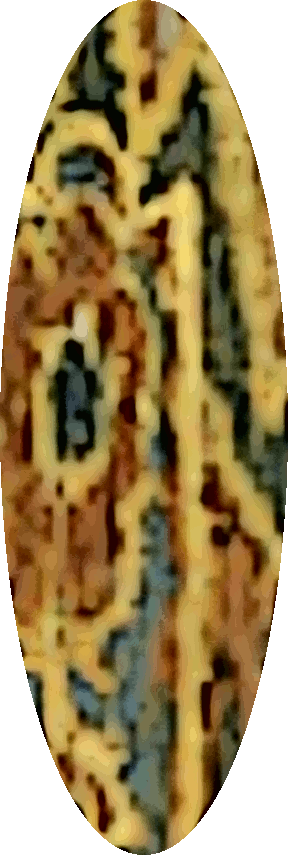
Down on the
homestead |
- No sooner had the couple settled at Mount Vernon, which had become Washington's home, than he begin to expand the estate.
- In 1760 he made plans with a neighbor named Clifton to
purchase an 1,806-acre tract on the northern border of the estate
for a price of price of £1,150 sterling.
- Shortly afterwards, however,
his neighbor agreed to sell the same tract of land to another neighbor, for a slightly higher price.
- After a series of angry letters, Washington eventually paid £1,250 sterling to secure the land for himself
and the area became the Washingtons' River Farm.

Neck land map |
-
After the deal was finally completed,Washington drew a
detailed plan and called it 'Mr. Clifton's neck land platted by a scale of 50 poles to the inch,'
-
The map includes survey courses and distances of the perimeter and of each field under cultivation in the tract.
-
In 1766 Washington prepared a map of a much smaller portion of the property, entitled
'A Plan of My Farm on Little Hunting Creek.'
|
This map covers an 846-acre portion between Little Hunting Creek and the smaller Poquoson Creek. Both items are among the earliest extant maps of individual farms at Mount Vernon.
(loc.gov)
|
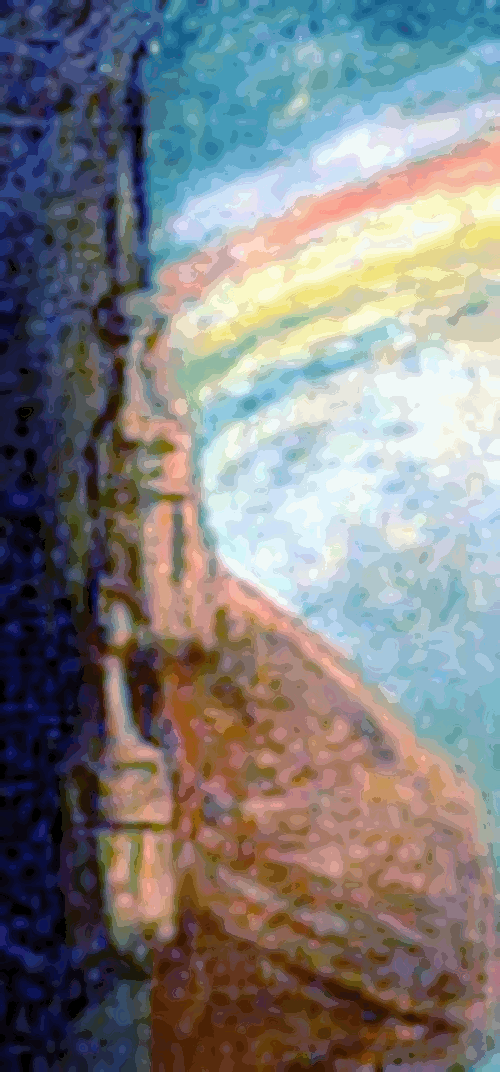
Meanwhile George
dreams |
- George and Martha had no children, but Martha did have four children by her first husband, Daniel Parke Curtis,
which provided George step-children.
- Three of her
children died young; Daniel Custis (1751-1754), Frances Custis
(1753-1757) and Martha 'Patsy' Custis (1756-1773).
-
The one who did survive to adulthood, John Parke Custis
(1754-1781), died at a relatively young age, succumbing to disease while serving at the Battle of Yorktown.
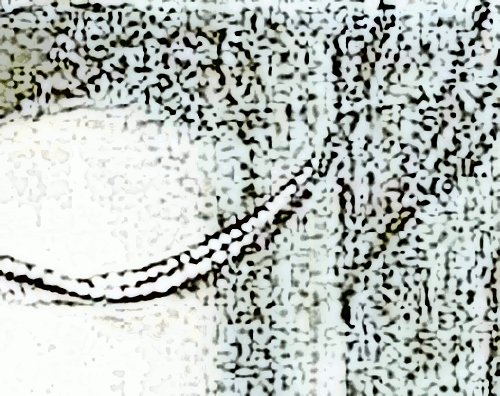
Tree swing |
- With no one left to care for John Parke’s young children,
George and Martha stepped in to raise two of them, Eleanor and
George Custis (whose daughter married Robert E. Lee, commander of the
army of the Confederate States of America).
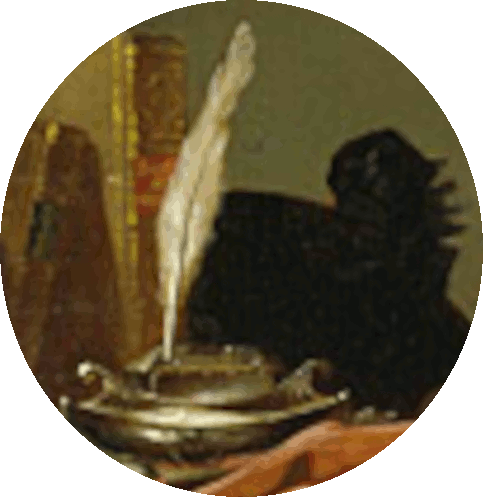
Slaveholder |
-
Like nearly all wealthy landowners in Virginia, Washington owned enslaved people who worked his land.
- He received the first enslaved workers of his own at age
11 when his father died in 1743.
- Washington inherited 10 enslaved people, and by the time he married Martha Custis in 1759, he had purchased at least
8 more.
- Martha also brought slaves into the marriage that
she received from her deceased husband.
|
The enslaved people and all of their children were considered part of the dower share, and though they lived on Washington’s estate and served him, they were technically held in trust for Martha’s children. When they married, Martha brought 84 slaves along with her.
(history.com)
|
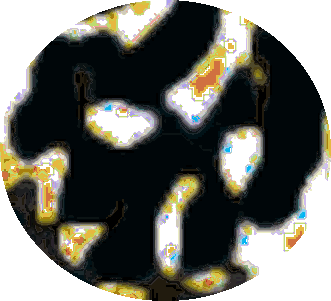
Slave |
- By the standards of his day, Washington treated his enslaved workers better than most,
however, he expected more from them than the average slave.
- This was because he began to use his plantation as a kind of efficiency experiment
using new farming techniques.
- He closely monitored the slaves
production in connection with the farm’s yield.
- Although he supported abolition in theory, he never tried it in practice
because his plantation, his wealth and his position in society depended on enslaved workers.
|
He whipped, beat, and separated people from their families as punishment. Washington also relentlessly pursued escaped slaves and circumvented laws that would allow his enslaved workers freedom if they did manage to escape to neighboring states.
(history.com)
|
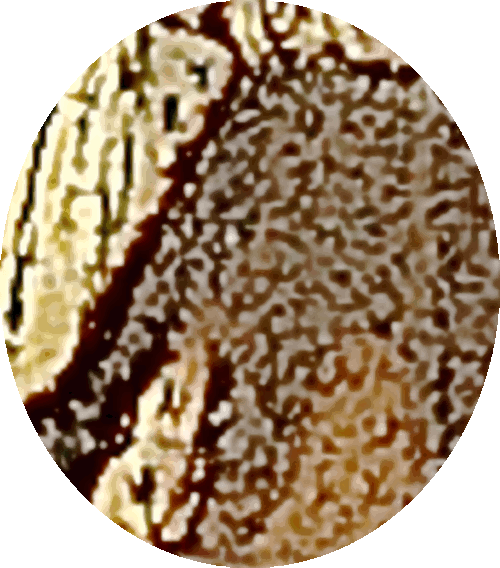
Wealthy man |
- George Washington's land holdings at Mount Vernon eventually grew to about 8,000 acres.
-
From 1759 to the beginning of the American Revolution, Washington managed his lands around Mount Vernon and served in the Virginia House of Burgesses.
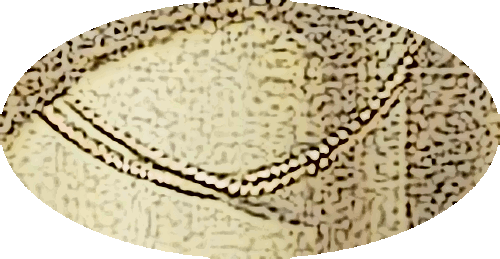
Martha pearls |
-
Washington eventually became a wealthy man, partly from his marriage to Martha, but also from land that he acquired and managed throughout his life.
|
and then, in dreaming, The clouds methought would open and show riches Ready to drop upon me, that when I waked I cried to dream again.
(Shakespeare, The Tempest)
|

Gold pen |
-
During this time Washington also became the outright owner of Mount Vernon as his brother’s residual heir upon the death of Lawrence's widow.
- Washington controlled one of the wealthiest combined estates in Virginia.
|
Washington was passionately devoted to Mount Vernon, eagerly extending its borders during the next three decades with numerous purchases of surrounding lands and striving constantly to improve its buildings, fields, and furnishings.
(loc.gov)
|
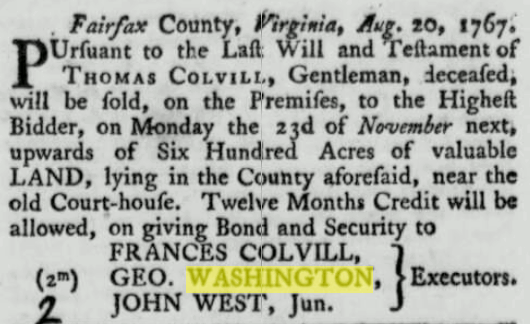
Annapolis Maryland Gazette
September 10, 1767 |
- George Washington was the executor for Thomas Colvill
(1688-1767)
when he died.
- Colvill's wife, Frances (Francina) Colvill
(-1773), was also an executor on her husband's last will and testament.
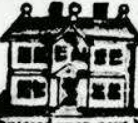 |
- 600 acres
of valuable land that Colvill inherited in his brother's will, was put up for auction to the highest bidder
at the county courthouse to take place on November 13, 1767.
|
I give also to my said Brother Thomas Colvill for and during the term
of his natural life my now dwelling plantation called Cleesh on Great Hunting
Creek in said County containing one thousand acres together with the mill and
appurtenances thereto near adjoining, and all the houses, utensils, Negroes and
Stock that shall be on or belong to the said Plantation at the time of my decease
ordering however, and it is my will and intent that the said Negroes be kept to
work on the said Plantation by my said Brother or Executors, and that the
profits of which an account shall be kept arising from their labour in Crops of
any kind or otherwise shall be subject for the term of three years or three Crops
to be applyed by my Executors hereafter named towards the payment of my
just debts, but at the decease of my said Brother, then my will is, and I do
hereby give and Bequeath the said plantation called Cleesh Mill, houses,
utensils, Negroes and Stock unto the right Honorable, the present Earl of
Tankervile and his heirs forever. And I do hereby appoint him, the said Earl
of Tankervile, and my Brother Thomas Colvill, Executors of this my last will
and testament.
(archive.org/stream/washingtoncolvil00blum)
|
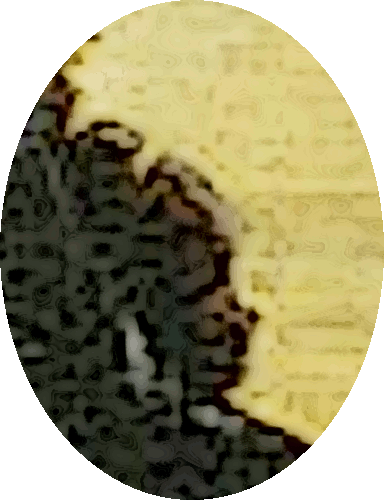
Slave girl |
- In his testament, Thomas
Colvill provided that Frances's niece, Sarah Savin, who would marry William Bernard, should receive £250 current money as well as a slave girl.
- In October 1766,
Washington loaned Frances £10, which she repaid in April 1767.
|
I leave the use of my negro man George unto my wife during her life or
widowhood, and after that Term is expired, I give the said negro George unto
John West Jr., and his heirs forever.
(Thomas Colvill)
|
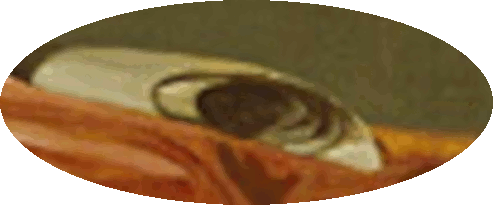
Last will and
testament |
- Washington did not want to be the executor on Colvill's
will but had no control over Colvill's addition of his name to
the actual document.
- Colvill promised him that his nephew,
John West, would handle the majority of the duties, that was
not the case.
|
Lawless are they that make their wills their law.
(Shakespeare)
|
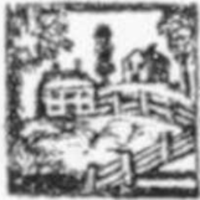
Williamsburg Virginia Gazette
October 1, 1767 |
- It was a difficult and complicated will and Washington
remained embroiled in the details until 1797.
|
Watch out he's winding the watch of his wit, by and by it will strike.
(Shakespeare, The Tempest)
|
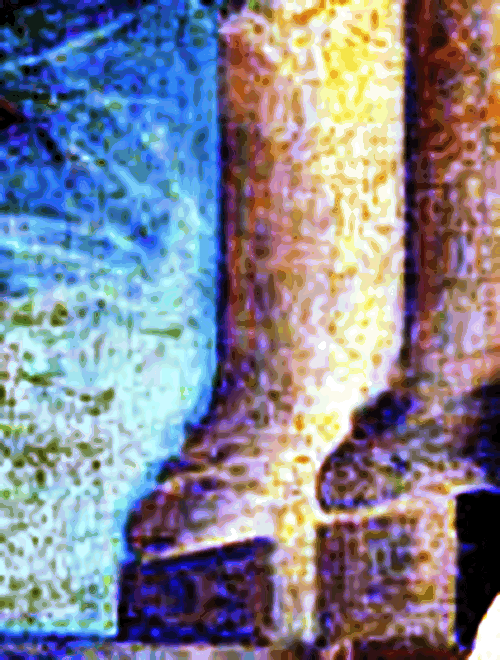
Virginia House of
Burgesses |
- George Washington was first elected to the Virginia
House of Burgesses in 1758 as a representative of Frederick
County and later he was elected by Fairfax County landholders
where he held office for 16 years in the colonial assembly.
- In the imperial crisis of the 1760s and 1770s, he became an early advocate of the patriot cause.
- And in the interim, he appeared to involved as a trustee
in many land holdings.
|
Neither a borrower nor a lender be.
(Shakespeare)
|
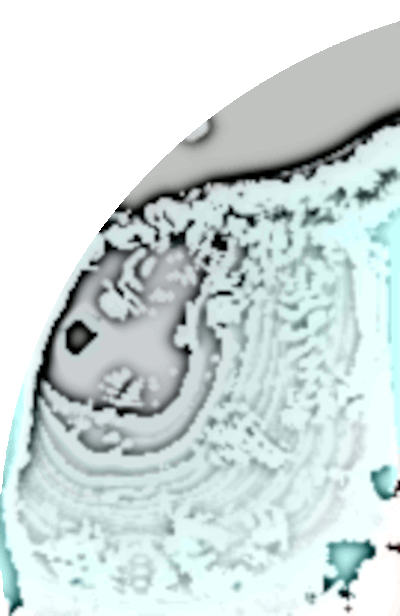
Land business |
- It was evident he was already heavily dedicated to the
'land' business and had many auctions in full swing.
- Washington's lifelong interest in land speculation is illustrated in the fight over bounty lands promised to the veterans of the Virginia Regiment who fought with him in the French and Indian War.
- He acted on behalf of his fellow veterans as well as vigorously, sometimes aggressively, in staking out his own land claims.
- He made
a trip to the Ohio River Valley in order to see the lands that he earned for his service in the French and Indian War.
|
Desire of having is the sin of covetousness.
(Shakespeare)
|
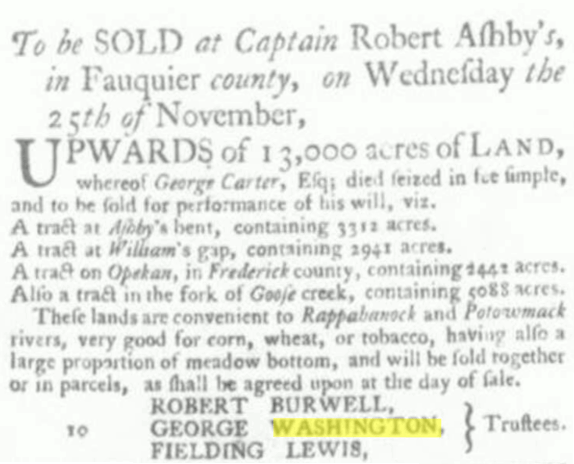
Williamsburg Virginia Gazette
October 1, 1767 |
- One of the many land deals that Washington was involved
in as trustee.
- 13,000 acres from the will of George
Carter.
- Throughout his life, Washington collected rents
from land he owned in Western Virginia and Pennsylvania.

Land slice |
- Washington sent a letter about the land grants for the
war veterans in September 1767
to William Crawford, a Pennsylvania surveyor.
- The goal of
the colonial leaders to gain land in America becomes very
clear; the belief that if the land was not surveyed and mapped
according to British law, that it was up for grabs.
|
I can never look upon the Proclamation in any other light (but this I say between ourselves) than as a temporary expedient to quiet the minds of the Indians. It must fall, of course, in a few years, especially when those Indians consent to our occupying those lands. Any person who neglects hunting out good lands, and in some measure marking and distinguishing them for his own, in order to keep others from settling them will never regain it. If you will be at the trouble of seeking out the lands, I will take upon me the part of securing them, as soon as there is a possibility of doing it and will, moreover, be at all the cost and charges surveying and patenting the same . . . . By this time it be easy for you to discover that my plan is to secure a good deal of land. You will consequently come in for a handsome quantity.
(loc.gov)
|
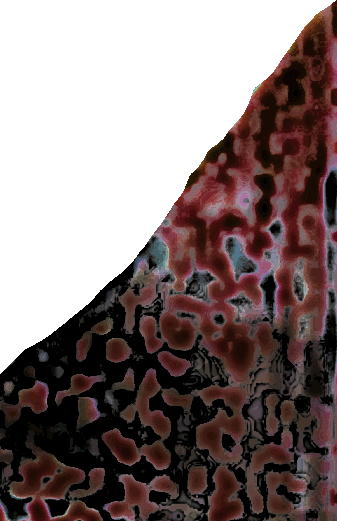
Landslide
|
- Washington was clearly willing to take considerable risks in seeking out choice land for himself.
- In the same letter, however, he warned Crawford "to keep the whole matter a secret, rather than give the alarm to others or allow himself to be censured for the opinion I have given in respect to the King's Proclamation."
|
He concluded by offering Crawford an alibi should his behavior be called into question. "All of this can be carried on by silent management and can be carried out by you under the guise of hunting game, which you may, I presume, effectually do, at the same time you are in pursuit of land. When this is fully discovered advise me of it, and if there appears a possibility of succeeding, I will have the land surveyed to keep others off and leave the rest to time and my own assiduity." In fact, the letter marked the beginning of a very profitable fifteen-year partnership. Less than two weeks after he had received it, Crawford informed Washington about several tracts in the vicinity of Fort Pitt, and the two men continued to collaborate until Crawford's death in 1782.
(loc.gov)
|
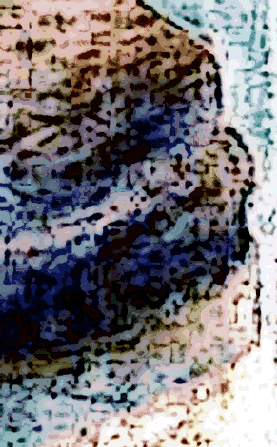
Wood man |
- In October 1770, George Washington began a survey of the Ohio River valley.
-
Washington, Crawford, and a fellow veteran named Dr. James Craik set out from Fort Pitt by canoe to explore possible sites for the bounty lands.
- Washington took detailed notes and observations as they journeyed to the junction of the Ohio and Great Kanawha Rivers and
part of the Great Kanawha.
|
And Jesus said, “Father, forgive them, for they know not what they do.” And they cast lots to divide his garments.
(Luke 23:34)
|
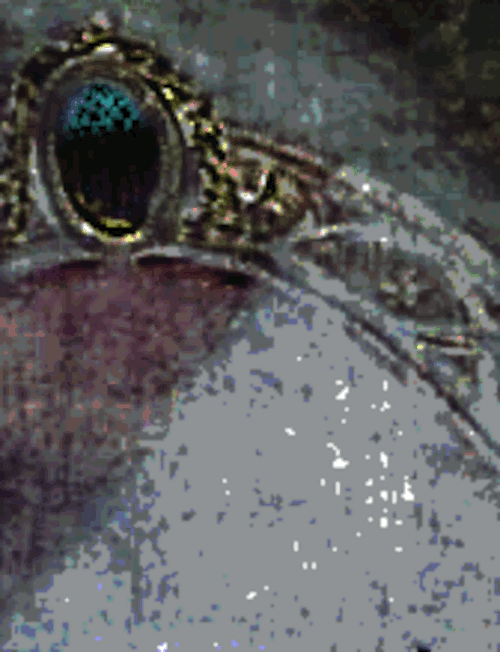
Mirror on the wall |
-
The following year, the executive council distributed 170,000 acres of the land, holding the
remaining 30,000 acres in reserve for future claimants.
- Fifty-two enlisted men got a total of 20,800 acres, 400 acres each. But 150,000 acres went to Washington and his fellow officers.
- Washington received 18,500 acres, nearly as much as all the
enlisted men combined.
|
Nonetheless, he wasn’t satisfied. He approached several of his fellow veterans and offered to buy up their claims. In these discussions, he spread the false notion that there was a strong “chance of our never getting the land at all.” He convinced his comrades-in-arms to part with their claims for next to nothing, and eventually latched onto an additional 5,000 acres.
(historynet.com)
|

Survey the land |
- The next year, in 1771, Crawford began to survey the tracts he and Washington had identified on the Great Kanawha expedition.
- In 1774, Washington drew maps from Crawford's surveys
and out of a total of 64,071 acres apportioned on the map, 19,383, or approximately 30 percent, were patented in Washington's name.
- The remainder of the acerage, 70 percent, was designated
for a small list of 8 distinquished Virginia Regiment members
and lifelong friends of Washington.
- The same regiment
members created all the original maps of the area which were
very important to Washington due to his interest in surveying
and cartography.
|
In a 1794 letter to Presley Neville, Washington said that these lands were "the cream of the Country in which they are; that they were the first choice of it; and that the whole is on the margin of the Rivers and bounded thereby for 58 miles.
(loc.gov)
|
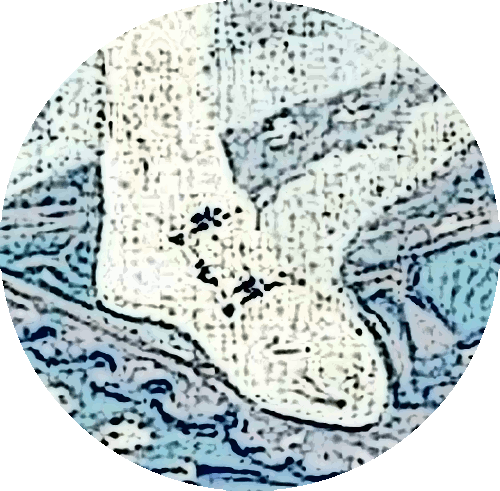
Sneaker |
- In those days virtue was not the right word for Washington,
however, it was the word many men sought to have associated with their names.
|
And then there was his insatiable craving for land,
which led him to cheat some of the men he had
commanded in the French and Indian War out of acreage
they had been offered as an incentive to join the
fight. As biographer Ron Chernow put it, Washington
“exhibited a naked, sometimes clumsy ambition.”
(historynet.com)
|
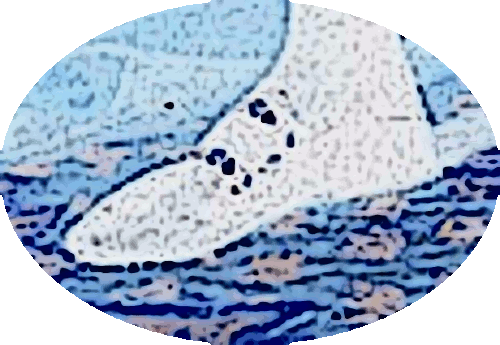
Same shoe on the
other foot |
-
Later, when the 30,000 acres held in reserve were allocated, Colonel Washington picked up another 3,000 acres.
- He also obtained land through a royal bounty program, both directly and by purchasing land from his fellow veterans.
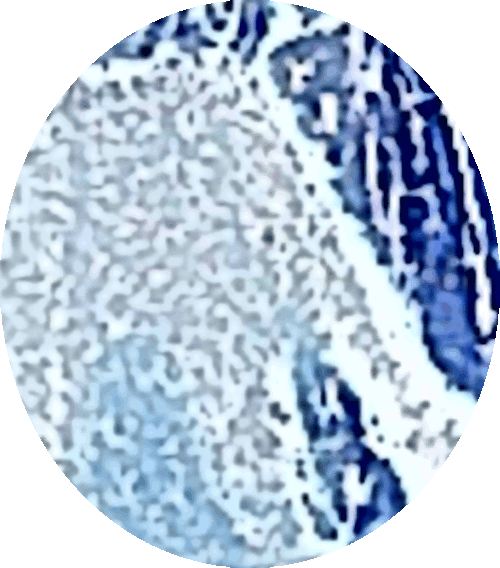
White elephant |
- Washington instructed his brother Charles Washington, who represented him in these transactions, to hold down the purchase price by approaching the men
'in a joking way, rather than in earnest, at first.'
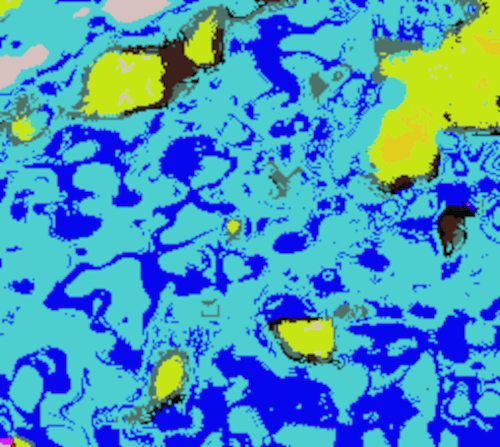
Goldfish |
-
Washington also connived to get the most prime acreage by
having a friend who was a surveyor named Crawford ignore the House of Burgesses decree that the river frontage of any tract could not be greater than three times its depth.
- As a result, Washington received tracts that ran right along
the river, while others soldiers tracts were as much as 5
miles away.
|
All told, Washington— who, as an officer, was originally entitled to
no land at all—ended up with more than 27,000 acres.
(historynet.com)
|
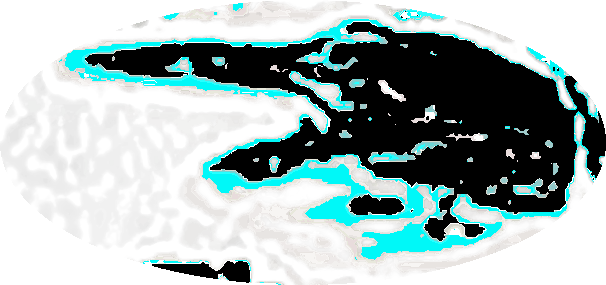
Alligators |
-
Crawford violated the oath of colonial surveyors, which he had conveniently neglected to swear
to.
- Washington may have thwarted the intentions of the legislature, but he could not evade the wrath of his fellow veterans.
|
All in all, the colonel’s behavior had been amoral at best. He had defrauded the very men who risked their lives to fight for him. At the time, Washington was in his early 40s, an age when most men’s moral characters are set for life. But he was about to morph, radically and for the better.
(historynet.com)
|
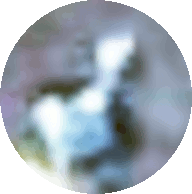
Betrayal |
- Officers had trusted Crawford and Washington to act as
their representatives, but both men had betrayed them.
|
Crawford was soon reporting that the officers were “a good deal shagereend [chagrined]” that Washington had snapped up much of the best riverfront property. The commander of the regiment had received, as even he acknowledged, “the cream of the lands.”
(historynet.com)
|

Wheels turning |
-
By 1760, Washington was heavily vested with Fairfax County where he became a vestryman of the local parish, a magistrate of the county court, and trustee of Alexandria.
- He was one of Fairfax's two burgesses in Virginia's legislature, a position that he held from 1765 to 1775.
- While carrying out the duties of his offices and
conducting the daily business of his plantation, he came to
know a large number of local merchants, craftsmen, farmers,
and planters.
|
The wheel is come full circle.
(Shakespeare)
|
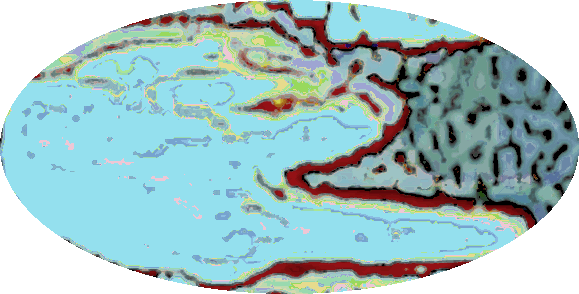
Acreage |
-
The future president owned a tremendous amount of land including 9,744 acres on the Ohio River and another 23,341 acres on the
'Great Kenhawa.'
- Washington also owned 234 acres in Pennsylvania, 3,051 acres in the Northwest Territory, and 5,000 acres in Kentucky.
- When he died in 1799 he owned 52,195 acres.
|
The attempt and not the deed confounds us.
(Shakespeare)
|
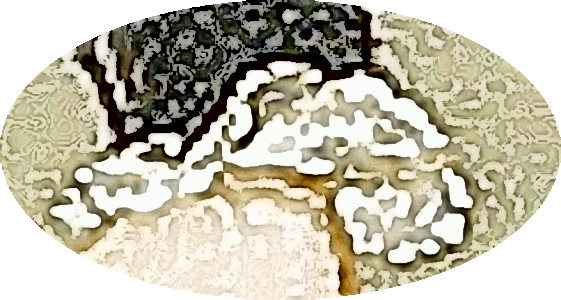
British regulator |
- After the repeal of the Stamp Act, many colonists
still had grievances with British colonial policies.
- Washington, and other planters, felt exploited by British merchants and hampered by British regulations.
-
From 1763 through 1766 there were many British reforms that
were met with colonial resistance.
|
The Stamp Act had led Americans to ask fundamental questions about the relationship between their local, colonial, legislatures, which were elected bodies, and the British Parliament, in which Americans had no elected representation.
(loc.gov)
|
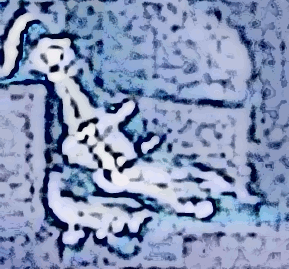
Virginia Company soldier hanging
around |
-
For example, the Mutiny (or Quartering) Act of 1765 required colonial assemblies to house and supply British soldiers,
which many felt was extra taxation.
- Additionally, colonists objected to the presence of a 'standing army' in the colonies.
|
Overall, American revolutionaries viewed English actions from 1767-1772 with suspicion. They read in British policy a systematic conspiracy against their liberties. As the colonists saw it, tax revenues fed corrupt British officials who used monies they coerced from the colonies to line their pockets, hire additional tax collectors, and pay mercenaries to come to America and complete the process of "enslaving" colonists.
(loc.gov)
|

Condolences |
- Patsy, one of Martha’s children by her first marriage, died from an epileptic seizure in 1773.
- The news was nearly as devastating for Washington as it
was for Martha.
- For Washington, however, there was a silver lining
as half of Patsy’s £16,000 fortune went to her mother, but English common law granted husbands absolute control of their wives’ property.
- The effect of Patsy’s premature death was to rescue her stepfather from great debt
and Washington never again had to worry about money.

Childless |
-
About this same time, Washington came to the realization that
he would never have children with Martha who was approaching
mid-40s.
- He came to the
understanding that he would never have sons to pass down his fortune
that he had worked so hard to acquire.
- It's like he
realized that if he was to be remembered in posterity, it
would be for his accomplishments as a general and a statesman.
|
In drafting his first inaugural address, he wrote, “the Divine Providence hath not seen fit, that my blood should be transmitted or my name perpetuated by the endearing, though sometimes seducing channel of immediate offspring.
(historynet.com)
|
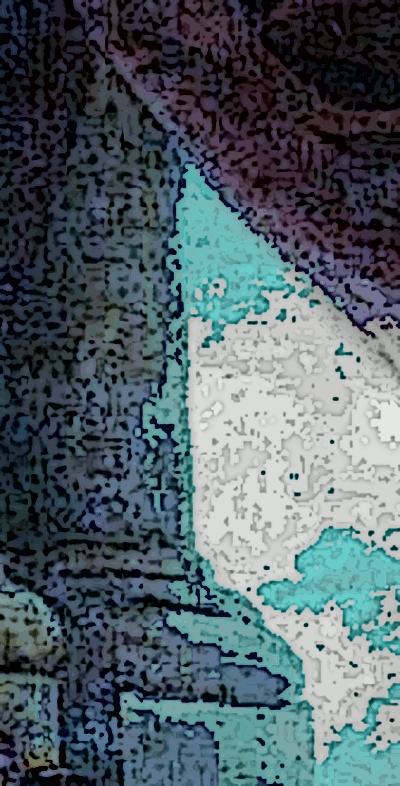
Washington as pillar |
- As the spat with the mother country grew, Washington moderately but firmly voiced his resistance to the restrictions.
- The Colonies moved into open rebellion from 1773 to 1774.
- After Governor Dunmore dissolved the
Colonial Assembly in 1774, Washington met with other disgruntled Burgesses at the Raleigh Tavern in Williamsburg and adopted a nonimportation agreement.
|
And even if our gospel is veiled, it is veiled to those who are perishing.
(2 Corinthians 4:3)
|
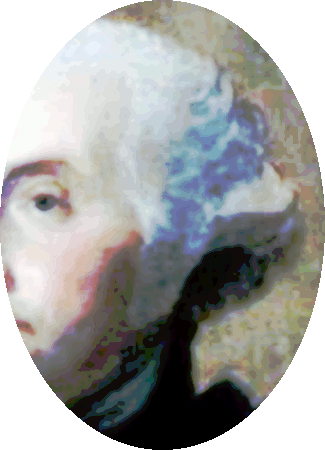
Continental
Congressman
ghostbuster |
- In 1774, at age 42, he was elected by the first Virginia Convention as a delegate to the First Continental Congress, which adopted Virginia’s program of economic coercion against the mother country.
|
Had you known George Washington in 1774, you might have admired his skill as an Indian fighter, but you would not have predicted he would one day become his country’s paragon of virtue.
No, virtue is not the first word that would have come to mind. Try greedy, perhaps, or cunning. The young Washington was a man on the make. He wanted to get rich. He bought, sold and traded slaves, raffling off some in a lottery and permanently dividing families.
(historynet.com)
|
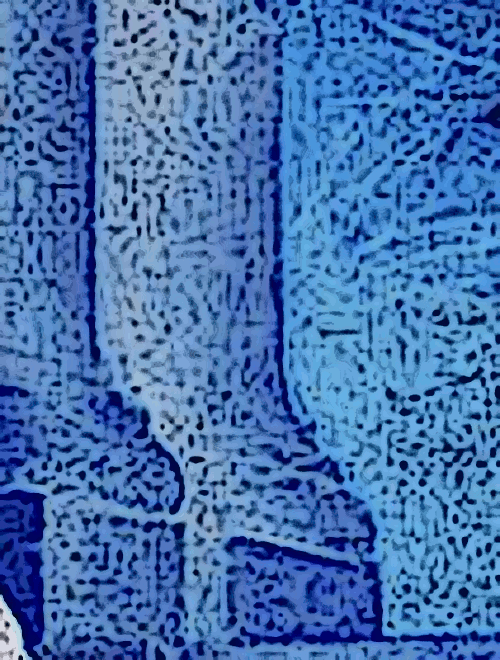
Congress |
- When the Second Continental Congress assembled in Philadelphia in May 1775, Washington,
was one of the Virginia delegates.
- In June 1775,
Congress recognized his military experience and appointed him
its commander-in-chief of the Continental Army.
- Men like
Samuel Adams and John Adams of Massachusetts favored independence from Britain.
- In opposition to ending relations
with the British, were men such as John Dickinson of Pennsylvania who hoped for a quick settlement and reconciliation with Great Britain.
|
Over the next year of conflict, bungling British policy-makers tried to recruit Indians, slaves, and foreign mercenaries, they blockaded colonial ports, and they rejected allefforts at conciliation. These actions pushed more and more colonists to favor independence.
(loc.gov)
|
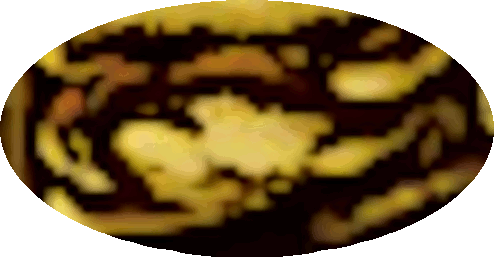
British crown |
- The Revolutionary War, also known as the American
Revolution, began on April 19, 1775, when the first shots of
the war occurred, and ended on September 3,
1783.
- The war was the result of growing tensions between residents of Great Britain’s 13 North American colonies and the colonial government, which represented the British
Crown.
|
As the ones creating these laws, the gentry were able
to address and fix their own situations by passing
laws that got them out of trouble, saved or made them
money, and ensured their position on the top of
society.
(Celina Morgan, As Worthless as an Eldest Son Could
Be)
|
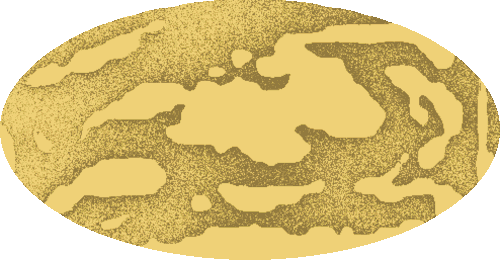
Gentry egg |
- On the eve of the American Revolution, the Virginia gentry
found themselves in an awkward situation; they had to redefine themselves
and their place within a society no longer tightly
bound to England.
|
I see that the fashion wears out more apparel than the man. (Shakespeare)
|

Clouds |
- The Revolution presented additional problems for
the young Virginia gentry.
- They found themselves needing to
choose a side, Loyalist or Patriot, which was hard for
many who considered themselves equals with the
landed elite of England.
|
The second generation of gentry patriarchs had
established a successful system that did not fail them.
The young gentry inheriting this lifestyle believed they
were coming into all the power and prestige in Virginia,
blind to the reality that their class was not invincible.
They inherited political authority, slaves, thousands of
acres in the best areas of Virginia. They had all the
power and money of which they could have dreamt.
However, by the 1790s, the gentry had lost their
standing in Virginian society in both the economic and
political realms.
(Celina Morgan, As Worthless as an Eldest Son Could
Be)
|
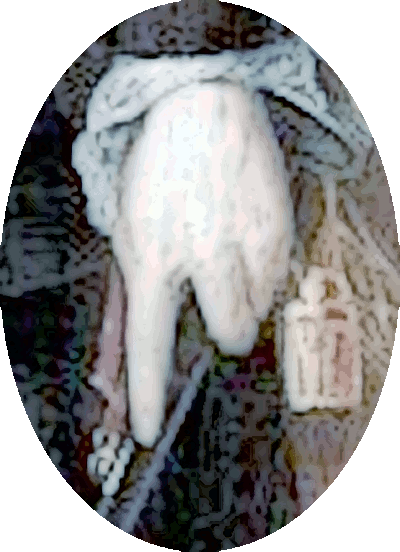
Gentry planter |
- The gentry planters, who
heavily relied on their slave labor, and struggled to run
their plantations, were in constant fear that their
slaves would run away.
- They also knew that demand for their product,
tobacco, was declining and prices were decreasing.
- Additionally, the tobacco continued to deplete the soil
of its nutrients, resulting in decreasing success of the
crop each year.
|
The young men believed they could
prosper as planters despite the picture of economic
distress among them. They wanted to live, as they
believed as their parents had, entertaining lavishly and
importing foreign goods. And as the gentry found
themselves in more and more trouble, the further they
romanticized the past.
(Celina Morgan, As Worthless as an Eldest Son Could
Be)
|
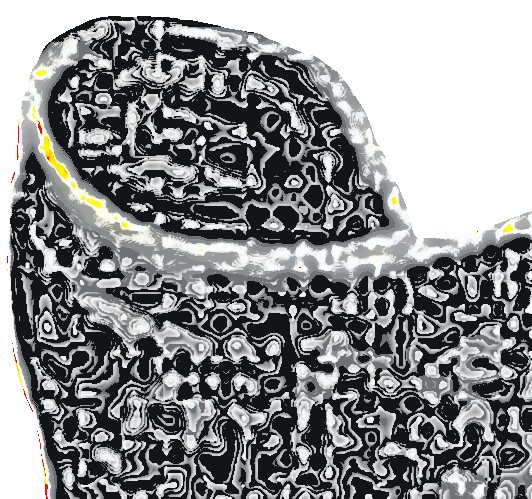
Wrap it up |
- Over time, Washington came to realize that slavery was immoral and contrary to the Revolutionary ideals of liberty and equality.
- In 1774 he endorsed a document, known as the Fairfax Resolves, which condemned the slave trade as
'unnatural' and recommended that no more enslaved people be imported into the British colonies.
- In 1779, 5 years later, he approved a plan to grant enslaved men their freedom in exchange for service in the Continental Army.
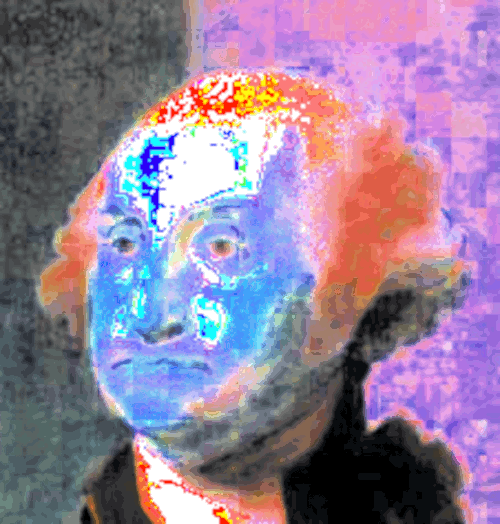
Finance manager |
- Many of Washington's views about slavery changed because
he discovered how inefficient it was to get an insolent slave
to do any work, and the more the government promoted
emancipation, slaves increasingly became more rebellious.
- Some believe that his changes in view
weren't based on moral ideals, but rather, finances.
|
Uneasy lies the head that wears a crown. (Shakespeare)
|
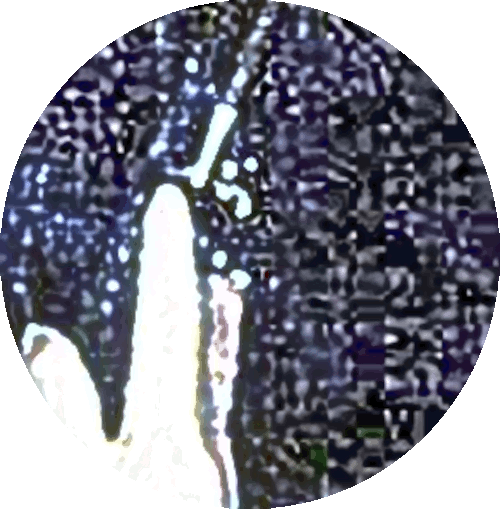
Chalk scraping |
- Washington fed, clothed, and housed his enslaved laborers poorly, candidly admitting that some of the dwellings he provided were so miserable that a white person would never consent to live in them.
-
About 61% of Washington’s field slaves were women doing hard labor
and they ived close to the fields, while most of the male
slaves lived at the plantation, including their husbands.
-
The enslaved workers grew even more insolent and theft was
high, causing Washington to be suspicious and wary of black
workers.
- Slave floggings were carried out under his
orders, but as time went on, he began to refuse them.
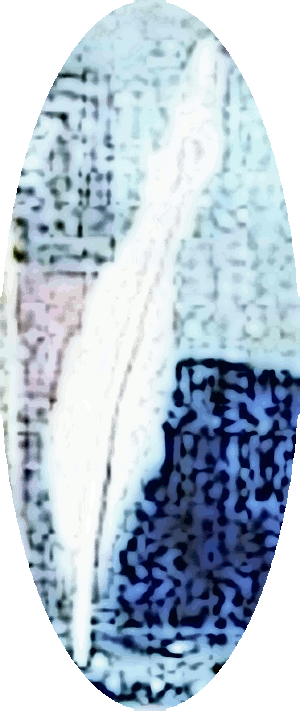
Yankee Doodle Dandy
|
- For some months, people in the colonies had been gathering arms and powder and had been training to fight the British.
- During the Revolutionary War, British soldiers
fought in numerous theaters, aided at times by Hessians and
Loyalist militias.
- In British conversation, the term 'Yankee doodle dandy'
took jabs at what they considered unsophisticated use of fashion, as though simply sticking a feather in one's cap would transform the wearer into a noble.
- It does seem quite hypocritical though, considering all the
natural resources they used to construct their 'fancy' clothes
came from places like America, India and the West Indies, etc.
|
General Thomas Gage, commander of British troops in Boston, had been cautious. He thought his army too small to act without reinforcements. On the other hand, his officers disdained the colonists as fighters, thinking they would flee with any show of British force.
(loc.gov)
|

Announcing the
British crown |
-
Gage received orders to arrest Samuel Adams and John Hancock,
who were rumored to be near Lexington, Massachusetts.
- When
he learned that the colonists had stockpiled guns and gunpowder in Concord, he decided to act
quickly.
- On the night of April 18, 1775, Gage dispatched nearly 1,000 troops from Boston hoping to catch the colonists by surprise and thus avoid
any bloodshed.
- Unbeknownst to him, all British activities were carefully
monitered by the patriots, and soon enough, William Dawes and Paul Revere rode out to warn people in the countryside that the British were coming.
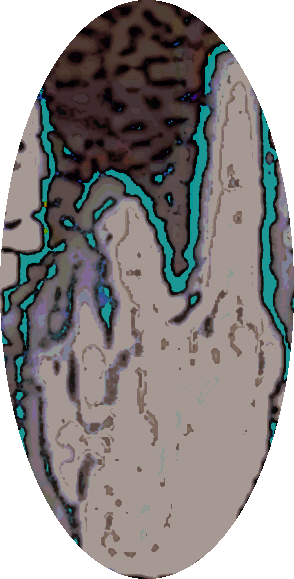
Angry
Minutemen |
- The Minutemen played a crucial role not only in the Revolutionary War, but in earlier conflicts.
-
Militia and Minutemen are very different from each other.
- Militia were men in arms formed to protect their towns from foreign invasion and ravages of war.
- Minutemen were a small hand-picked elite force which were required to be highly mobile and able to assemble quickly.
- About 25% of the men in the Militia were selected to be
Minutemen.
|
Minutemen were selected from militia muster rolls by their commanding officers. Typically 25 years of age or younger, they were chosen for their enthusiasm, reliability, and physical strength. Usually about one quarter of the militia served as Minutemen, performing additional duties as such. The Minutemen were the first armed militia to arrive or await a battle.
(ushistory.org)
|

Assaulted by angry
Minutemen |
- When the redcoats rode into Lexington the next morning,
they found several dozen Minutemen waiting for them on the
town's common.
- Shots were fired and 8 Minutemen were
killed and another dozen wounded.
- The British marched on
Concord and destroyed their arms, most of which had already
been removed by the patriots.
- By the end of the day, the
redcoats suffered three times more casualities than the
colonists.
- Effectively, the skirmish attacted thousands
of American patriots to the rebellious cause.
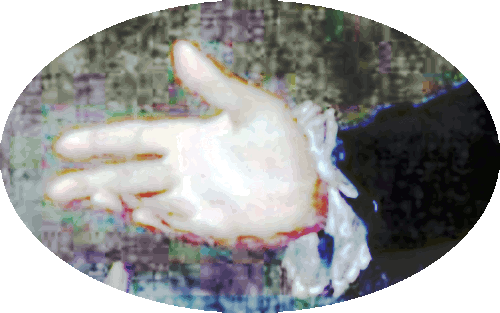
American Revolution |
- Washington was commander in chief of the colonial armies in the American Revolution
from 1775 until 1783.
- On July 3, 1775, at Cambridge, Massachusetts, he took command of his ill-trained troops and embarked upon a war that was to last six grueling years.
-
He arrived for duty at Cambridge headquarters on July
2, 1775, and did not return to Mount Vernon for another six
years.
|
Americans longed for a national hero, and Washington,
tall, handsome and brave, fit the bill. He was quickly
dubbed “father of his country.“
(historynet.com)
|

Frozen |
- Valley Forge, Pennsylania, was the location of the
1777-1778 winter encampment of the Continental Army.
- They
were quartered there because the British occupied the capital
of Philadelphia, a day's march away.
- Although the troops
were not frozen or starving with holes in their shoes as
the history books claim.
|
In the summer of 1778, Washington could claim that the war effort was going well. The army’s decision to occupy Valley Forge and maintain strong offensive pressure on the enemy was a wise one. After they abandoned Philadelphia, the British had little to show for all of their past year’s efforts.
(nps.gov)
|
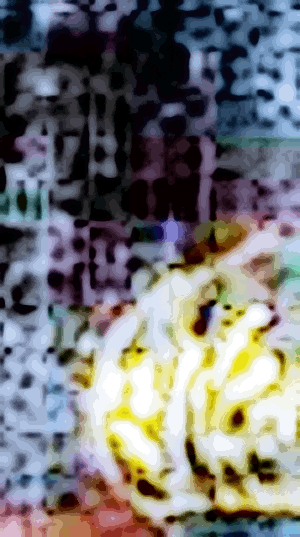
Vision |
- While at Valley Forge, Washington was visited in his
tent by a mysterious ethereal woman, who shows him a vision of
three perils that sketch the future of the United States.
-
Peril 1 is the American Revolution.
- Peril 2 is the Civil
War.
- Peril 3 is an invasion that will nearly destroy the
country.
- Two out of three, done, the third is occurring
now.
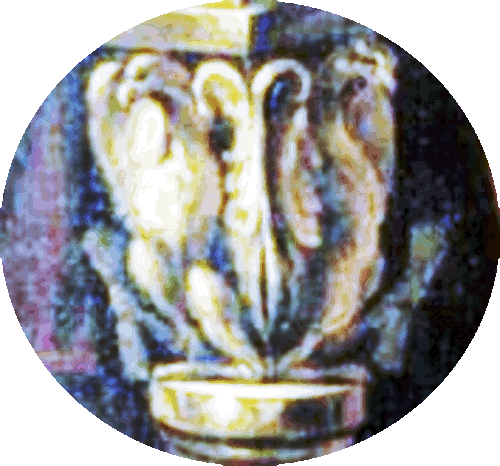
Patriotic volunteer |
- Once in the line of duty, his first task was to mold
an inexperienced and undisciplined group of volunteers into a
professional army.
- Washington accomplished this by
setting high standards of personal conduct and emphasizing
unity, as well as his efficient management and administrative
procedures.
- His greatest feat was holding the ragtag
outfit together in the face of public apathy and marginal
support from the states as well as inadequate Congressional
assistance.
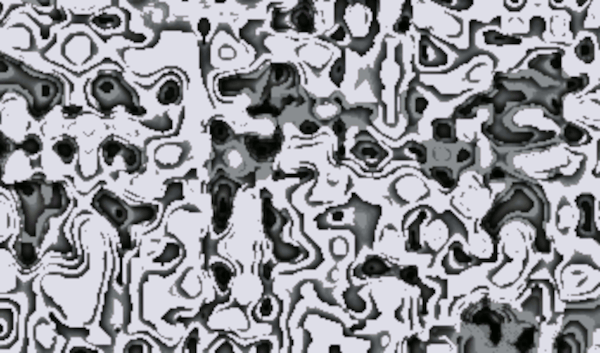
Cartography |
- Deeply concerned about the lack of accurate maps available to his army, Washington created the office of Geographer to the Continental Army.
- He appointed Robert Erskine, a Scottish-born
engineer and inventor, to fill the position in July 1777.
- His library inventory listed more than
90 maps and atlases at the time of his death.
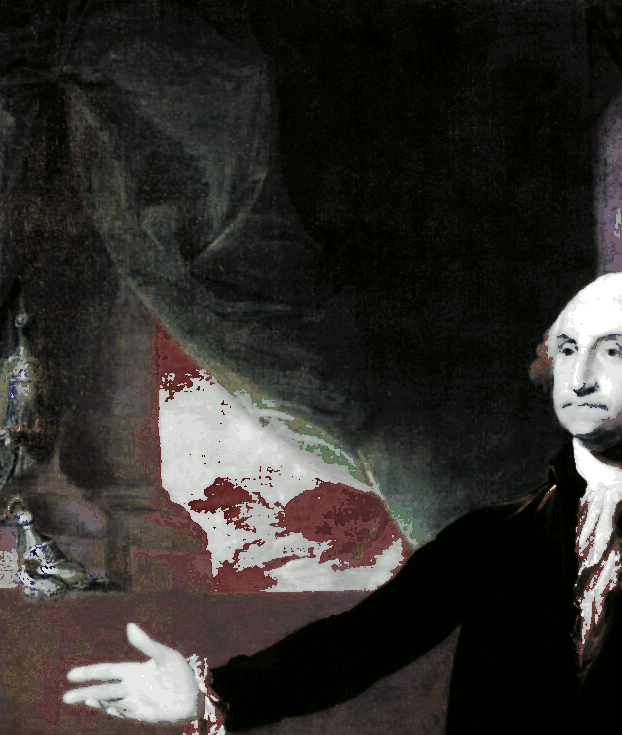
Masonic ceremonies |
- Beginning in 1778 and through the remainder of his life, Washington was a frequent participant in Masonic ceremonies.
- On June 24, 1779, Washington attended American Union Lodge’s celebration of the Feast of St. John the Baptist.
- He also visited King Solomon’s Lodge in Poughkeepsie, New York, on December 27, 1783.
- Is that Nixon or Wallace.
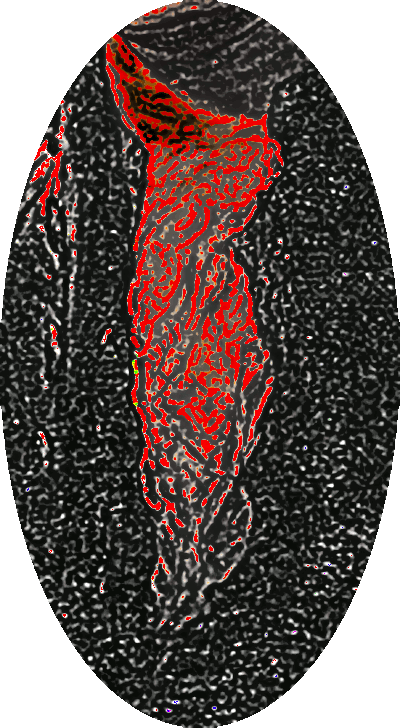
Red hats |
- 'Hunted down and hanged': George Washington angered by Americans who sell to British.
- Greed runs rampant among some American merchants and farmers who see the Revolutionary War as an opportunity to get rich.
|
Nor did he entirely reconsider his love of wealth. He spent much of the 1780s battling what he called the “willful and obstinate sinners” who squatted on his ill-gotten western lands without paying him rent Well into the 1790s, he continued to sell slaves he regarded as insufficiently respectful. Some of them never saw their families again.
(historynet.com)
|

Benjamin Franklin
key |
- Benjamin Franklin enlisted the assistance of the French army and navy,
which enabled the American revolutionaries to secure final
independence at Yorktown in 1781.
- Franco-American forces completed a successful siege operation in the traditional European style and captured
British Lord Cornwallis' entire army.
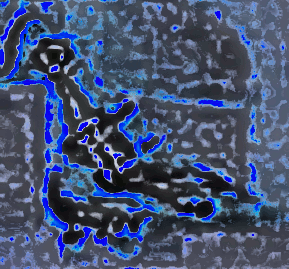
Defeated at Yorktown |
- Despite victories
at Charlestown, Long Island, and Philadelphia, the British
army was defeated at Yorktown.
- Washington bid farewell to his comrades in arms in 1783, resigned his Continental commission, and retired to private life.
- Following the Revolution, the British army slowly evacuated
the United States but remained in Canada and the Caribbean
until the 20th century.
|
For the wrath of God is revealed from heaven against all ungodliness and unrighteousness of men, who by their unrighteousness suppress the truth.
(Romans 1:18)
|

King George III of
England |
- King George III was a broken man after the loss of the North American colonies in 1783.
- By 1788 he suffered an attack of madness, either porphyria or bipolar disorder.
- The defeat of Britain in the War of the American Rebellion also destroyed George’s dreams of rebuilding the power of the monarch in British politics.
|
The people of Britain, for the most part, had lived with arguments and disputes between the crown and the American colonies from 1763 on. The war that broke out in 1775 dragged on for year after year without any conclusive victories for their nation. By 1783 they were heartily sick of the whole business and the burden of paying for a failed war. The Americans were off to make their own fate and the average Briton spent little time fretting about them.
(Wes Frank)
|
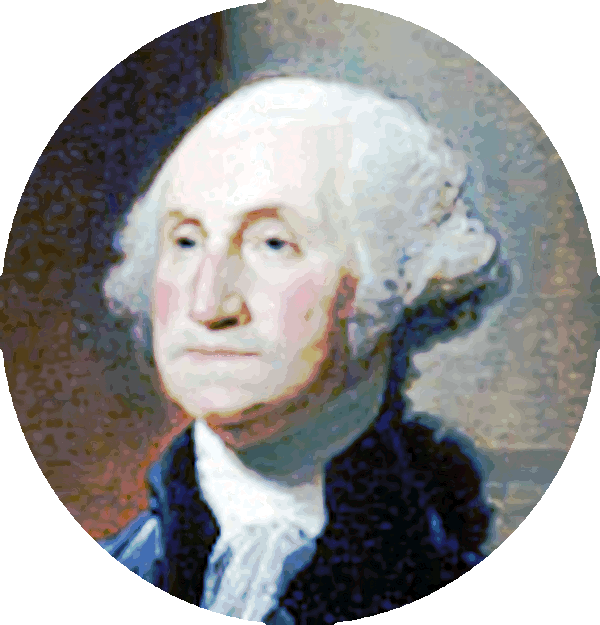
Presidential |
- Washington's return to Mount Vernon, however, was not permanent.
- In a 1783 circular letter to the states, Washington
wrote that a 'respectable national existence required an indissoluble union of the states under one federal head, a sacred regard for public justice, the establishment of proper national defense and the suppression of local prejudices.'
- In 1787, he was chosen as a Virginia delegate to the Philadelphia Convention that was to revise the Articles of Confederation,
where, against his wishes, he was elected presiding officer.
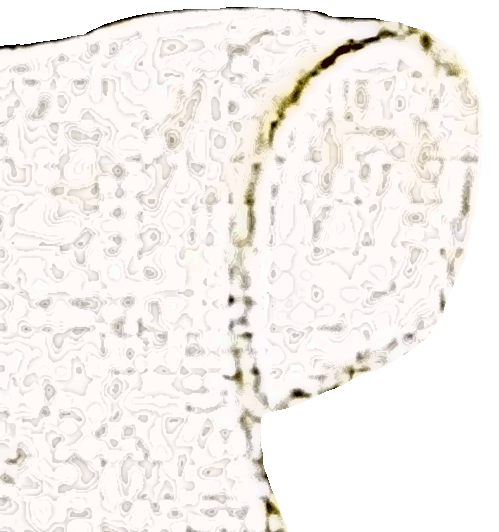
Declaration of
independence |
-
In 1787 he journeyed to Philadelphia for the Constitutional Convention, which he chaired.
- The result was a federal constitution that was adopted in
September 1787.
- It did not contain much of Washington's
handiwork, but it had the spirit of strong nationalism.
-
George Washington was elected the first president and
executive officer after the new constitution was ratified.

Masonic rose |
- After the war, in 1784, Washington accepted the invitation of his friends and neighbors to attend a June banquet at Alexandria Lodge No. 39, where he was elected an honorary member.
- Four years later he agreed to be charter master of the lodge when it transferred its allegiance from the Grand Lodge of Pennsylvania to the Grand Lodge of Virginia.
|
In 1794, the lodge commissioned William Williams to paint Washington dressed in Masonic regalia. After Washington’s death the lodge changed its name to Alexandria-Washington Lodge No. 22. (mountvernon.org)
|
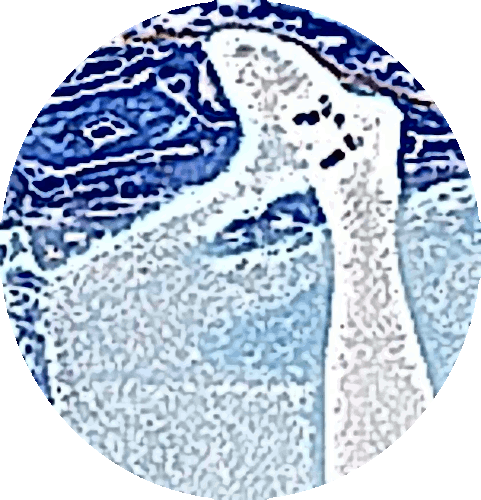
Crossing the
Delaware |
- Weather was important in the story because so much about
George Washington is weather-connected.
- He had seasick days during a stormy voyage to Barbados
and suffered through the cruel winters at Valley Forge and Morristown.
- Washington spent a lifetime outdoors
at his plantations or traveling, sometimes on water.
- The probability
exists that an ill-advised horseback ride in a December storm contributed to his death.

Weather related |
- He had very few instruments for recording the weather, but one in particular is notable;
his prized weather vane that has survived and still sits atop the cupola at Mount Vernon.
- The only other weather instrument he owned was a thermometer
as the barometers at Mount Vernon belonged to his descendants.
- Washington logged detailed records about the daily
temperature, however, no one knows if he was recording inside
the house or outside.
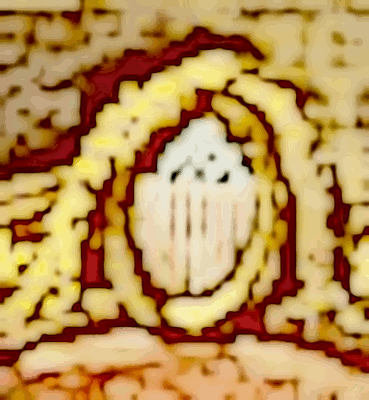
Inauguration |
- After his inauguration on April 30, 1789, Washington initially refused to accept the $25,000 annual salary Congress had appropriated for the president.
- Several congressmen persuaded Washington to accept the salary out of consideration for his successors who might not bring the same personal wealth to the office.
- He agreed and used the monies to pay for his servants’ wages and the expenses of his house; including provisions, clothing, and providing basic medical care for his enslaved workers.
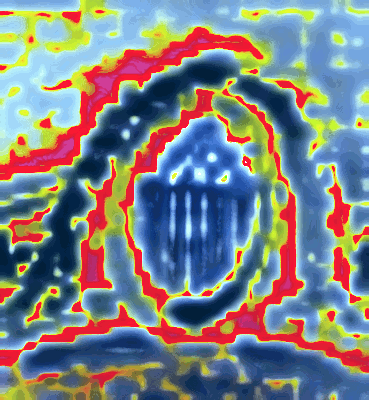
Congressional
funding for slavery |
- After Washington left office, Congress expected this
precedent to continue so they didn't provide any funding for
the presidents' household.
- Consequenty, another 15
presidents took them up on the offer and used the salary to
purchase slaves instead of hiring workers.
|
An overflow of good converts to bad. (Shakespeare)
|
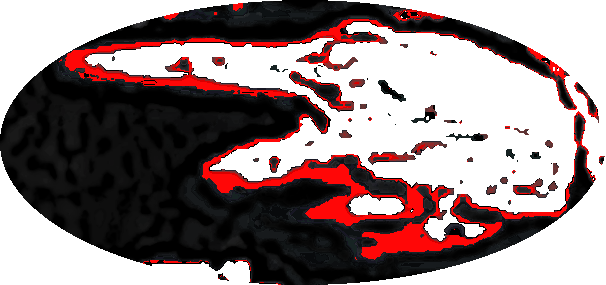
Rock paper scissors |
-
Historians found evidence that in 1790, Washington, acting secretly through a back channel, helped introduce Quaker petitions to Congress advocating a national emancipation effort and a ban on the international slave trade.
- The motion was defeated in Congress and his name was never
attached to it.
- At one point Washington considered
freeing all his slaves and then hiring them back, but the
Custis family heir wouldn't allow it.
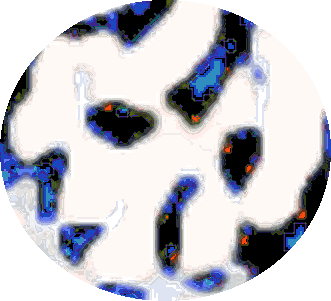
Ghost of the past |
-
In 1790, Washington articulated his membership in, and relationship to, Freemasonry when he replied to the brethren of King David’s Lodge in Newport, Rhode Island.
|
Being persuaded that a just application of the principles, on which the Masonic Fraternity is founded, must be promotive of private virtue and public prosperity, I shall always be happy to advance the interests of the Society, and to be considered by them as a deserving brother. (George
Washington, 1790)
|
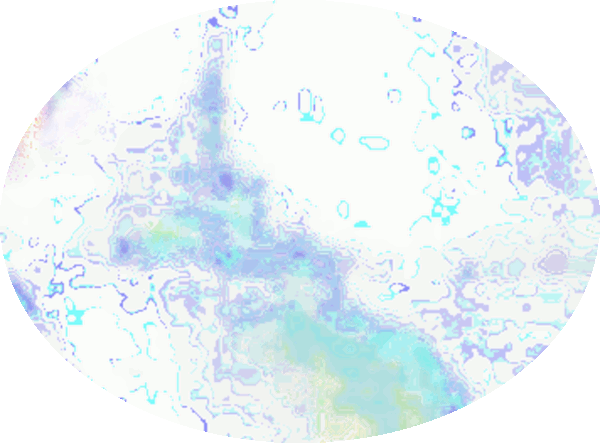
Capitol |
- Washingon's most significant Masonic activity occurred on September 18, 1793,
when he acted as grand master pro tem, where he presided at the Masonic ceremonial laying of the United States Capitol cornerstone.
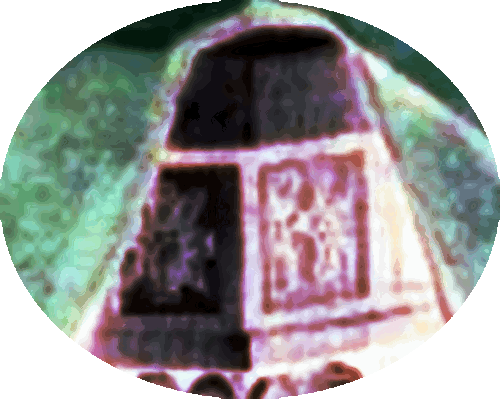
Liberty bell |
- During his presidency, Washingon was faced with many
new challanges including debates about states' rights and
assumption of war debts as well as foreign policy and domestic
land rights.
- During his two terms as president of the new
nation there were no wars, but serious diplomatic problems
arose with Great Britain, France, and Spain in 1793 and 1794.
|
Men’s vows are women’s traitors! (Shakespeare)
|
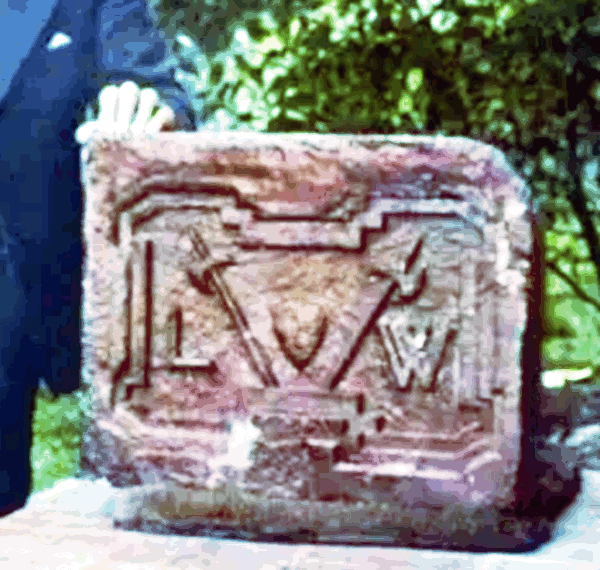
Mount Vernon
Masonic cornerstone, 1932 |
- Although Washingon was elected to a second term,
the nation was not united behind him because of disastrous
defeats he suffered against Northwestern Native American
nations.
- The cornerstone the builders rejected.
|
Democratic-Republican criticisms that Washington had become the head of a party instead of the nation boiled over in reaction to the treaty that John Jay had signed with the British and the Senate ratified in 1795. In the face of growing newspaper attacks against him, which he tended to take personally, Washington handed the reins of government over to his successor, John Adams, in the spring of 1797.
(mountvernon.org)
|

Gazette of the United-States (New York)
February
14, 1793 |
- American newspapers were filled with notices from
slaveowner's who had fugitive slaves until the end of the
Civil War that were penned by men who believed the slaves were
their 'property.'
- An important part of that
slaveowner system was the Fugitive Slave Act passed by
Congress in February 1793, and signed by President George
Washington, who owned more than 100 slaves himself.
- The act made it a federal crime to assist those who had escaped slavery or to interfere with their capture.
- It allowed the pursuit of “persons escaping from…their masters” everywhere in the United States, North and South.

Philadelphia
cornerstone |
- In the spring of 1796, while living in
Philadelphia, the nation's capital, Martha kept a number of
slaves with her that they would rotate them back to Mount
Vernon every few months in order to maintain their 'slave status' under the
laws of the day.
- Washington moved around his enslaved workers to evade Pennsylvania’s emancipation laws
and this further created suffering because the slaves couldn't
take advantage of these new laws.
|
In April 1789, at least ten white or free black paid servants that worked and may have boarded in the home; and several enslaved individuals.
(whitehousehistory.org)
|
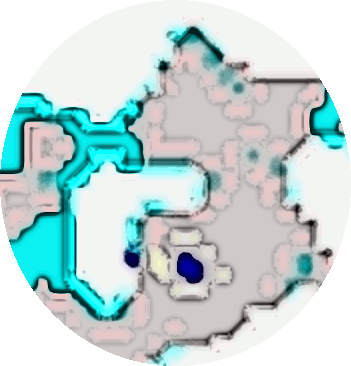
Ann Dandridge |
- Not all of the servants and slaves were
black, some were white, and not all of the blacks were slaves,
they were paid servants, although there was much disparity in
their treatment.
- The Washingtons followed elite Virginia custom and staffed their household with mixed-race servants.
- Martha Washington, meanwhile, owned an enslaved half-sister, Ann Dandridge.
|
Descendants of the slave West Ford have long claimed that George Washington was his father, but a compelling argument can be made that Ford’s father was the general’s nephew Bushrod Washington.
(encyclopediavirginia.org)
|
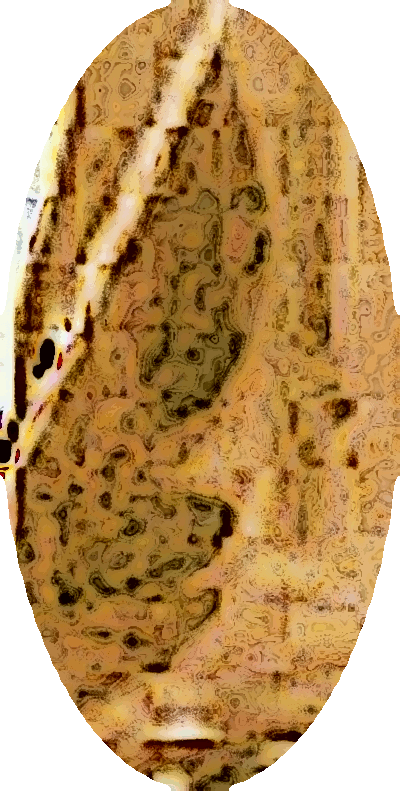
Stable dweller |
- Some enslaved workers slept in slave quarters next to the stables and had more
freedom, and some lived in the bedrooms with the children or
outside the president's bedroom door.
- Up to 30 people may
have lived in the house, very cramped quarters and no privacy.
- The servants and slaves took care of the carriages, horses
and stable as well as cooking, serving, laundry, escorting,
cleaning, babysitting, mending, dressing and greeting guests.
|
The enslaved people in the President’s House were also separated from their families back at Mount Vernon. By the time of his presidency, Washington had determined not to break up families through sales, but he had no objection to separating them physically. Christopher Sheels and other enslaved people who acted as messengers may have been able to pass notes and verbal messages, but those visits were infrequent.
(whitehousehistory.org)
|
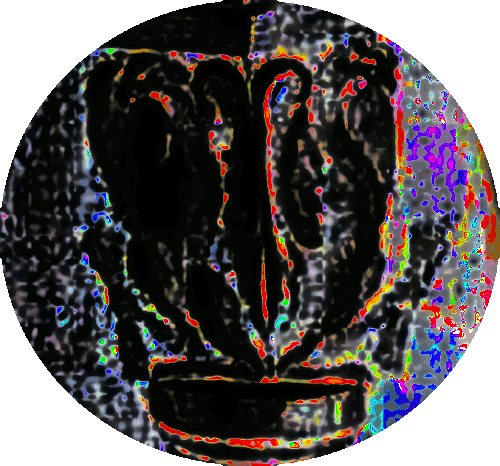
Treated like a clown |
- One of these enslaved people was Ona 'Oney' Judge, a slender young woman of about 20
described as a 'Mulatto girl' (half white).
- She lived
with the Washington's in New York City.
- Ona was responsible for drawing Martha’s bath, preparing her clothing, brushing her hair, tending to her when ill, traveling with her on social calls, and generally anticipating the first lady’s needs and navigating her moods.
|
When Judge learned that Martha Washington intended, upon her death, to make a wedding present of her to the Washington granddaughter Elizabeth Park Custis Law, she took matters into her own hands. On the evening of May 21, 1796, she waited until the Washingtons sat down to dinner, then walked out of the President’s House in Philadelphia. She was gone.
(loc.gov)
|
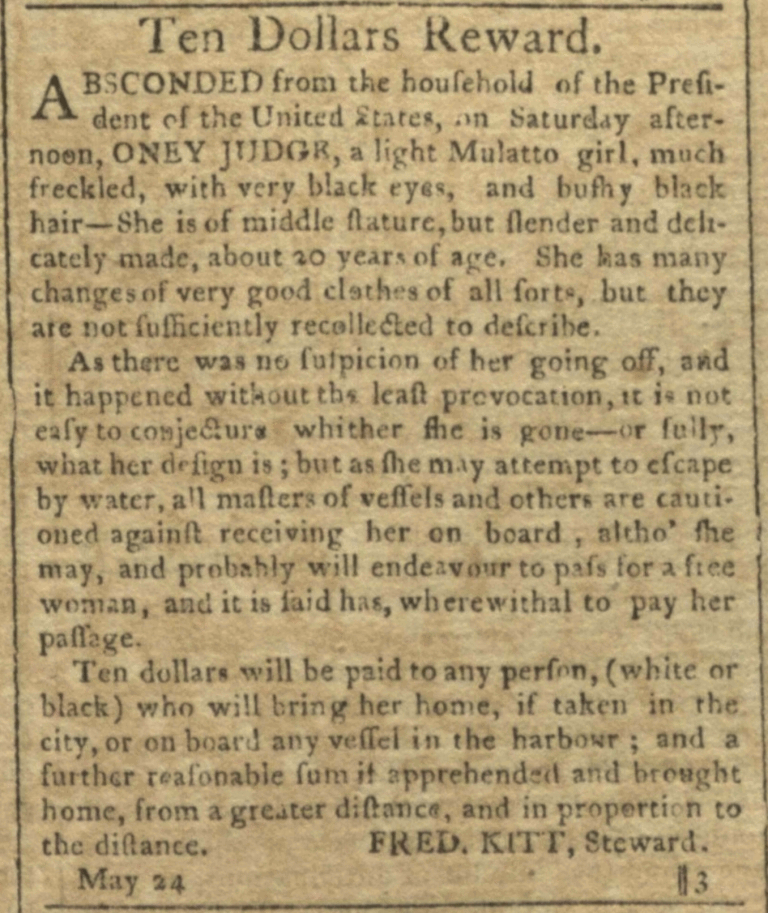
Claypoole’s American Daily Advertiser
May 27, 1796 |
- Ona Judge, 20, was a skilled seamstress and served as Martha’s
'lady’s maid,' although well-dressed, no one could seem
to recollect what her clothes looked like.
- Ona seemed
free to come and go as she pleased.
- She was originally
the property of the Custis family from Martha’s first husband,
until she married Washington and ownership passed to him.
- A ten dollar reward was offered to anyone, black or white,
who turned her in to Fred Kitt, the president's Steward.
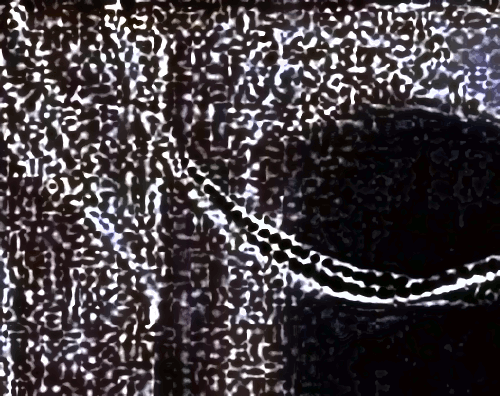
Washington dungeon |
- Ona Judge wrote about the experience in the 1840s when
she was in her 70s.
- She said that one of Washington's
aides found her after she had sailed to Portsmouth, New
Hampshire to escape.
- The aide tried to convince her to come back to Virginia but she
refused so he left, but eventually he returned to bring her and
her infant daughter back to Mount Vernon by force.
- That attempt was thwarted, however, and no further attempts followed.
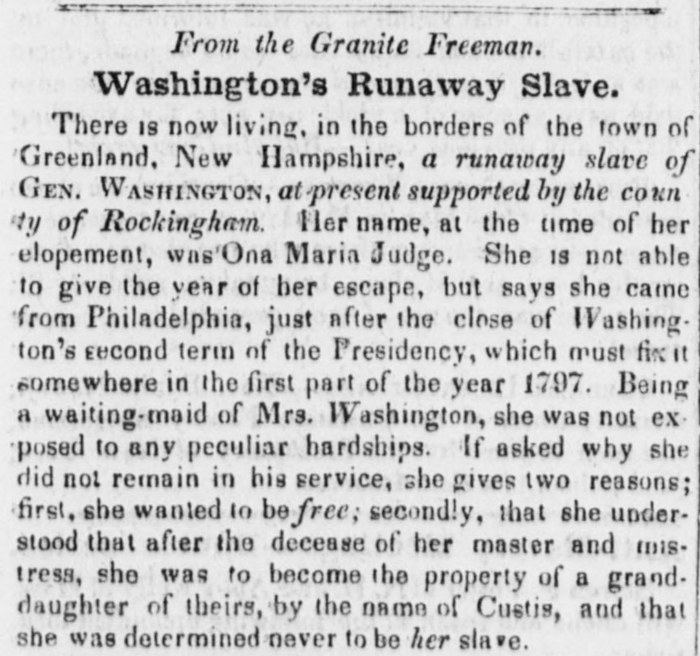
Anti-Slavery Bugle (New-Lisbon, Ohio)
August 22, 1845 |
- Washington made provisions in his last will and
testament to free his slaves, but not the Custis family
slaves.
- Ona
died a freewoman in 1848, though technically still a 'runaway
slave' in the eyes of the law.
|
Although Washington tried to maintain absolute authority over the enslaved people in his home, he couldn’t always exercise complete control. Austin arrived at Mount Vernon when he was just a baby in the arms of his mother, Betty, who belonged to Martha Washington. Austin never knew his father, but he was probably white, as Austin was considered fair-skinned.
(whitehousehistory.org)
|
- George, 'You left me, I looked for you but you were
gone.'
- At age 11, he inherited 11 slaves and 280 acres of
land from his father's will and 11 years later at age 22, he
had 36 slaves.
- As a young adult, Washington purchased at least
8 more enslaved people, including a carpenter named Kitt and
in 1755 he purchased 4 men and 2 women and a child.
- By the time he was inaugurated, the first president of America in 1789, George Washington was not only the man of his century with a reputation of impeccable honor and integrity, but also the man who held in bondage
317 slaves.
- He released his slaves in his will, but that never
happened until after Martha died.
|
George Washington, America’s first and most revered
president, had his feet in both slavery and his highly
acclaimed fight for freedom and justice for all. A bag
of contradictions? Or shame? No wonder the world media
has chosen to ignore the story. But welcome to George
Washington’s Mount Vernon Estate in Virginia.
(newsmagazine.com)
|

The cure |
- Over the course of his presidency, Washington continued to adjust the number of enslaved people and hired servants he had in his home.
- He increased the number of hired white servants, with up to
14 at one time, and decreased the enslaved workforce.
- Not all the slaves were suffering, some traveled to as many
as 13 states with the president and he would pay them for
their expenses while they were on the road.
- He also let
some of his slaves barter with leftover goods on the
plantation which provided them with some source of money.
-
Many of them seemed quite free, for example, he allowed a male
and female on separate plantations to marry (but later divided
them when he worried they were getting ready to escape).
|
Washington’s will decreed that all 123 of his enslaved people be freed upon the death of his wife. This action was made possible by a Virginia law passed in 1782 that allowed enslavers to manumit their enslaved people at will, without government approval. Washington conspicuously noted that it was not “in my power” to manumit the enslaved people owned by the Custis heirs, perhaps hoping to urge the Custis family to follow his example and manumit them themselves. (encyclopediavirginia.org)
|
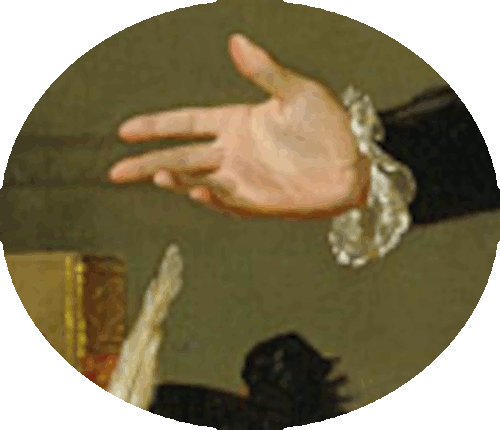
Throwing darts in
return |
- Washington in July 1796, was so upset by Ruston's letter
he sent an angry response, but soon learned to remain silent.
|
By the flame which you have kindled, every oppressed nation will be enabled to perceive its fetters… But it is not to the commander in chief of the American forces, nor to the president of the United States, that I have ought to address. My business is with George Washington of Mount Vernon in Virginia, a man who notwithstanding his hatred of oppression and his ardent love of liberty, holds at this moment hundreds of his fellow beings in a state of abject bondage.
(Edward Rushton, from Liverpool, England,
July 1796)
|
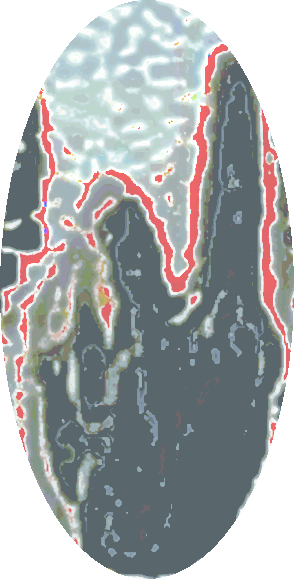
Hardt place |
- In many ways, Washington was in between a rock and a hard
spot as far as slavery goes.
- He inherited his first
slaves at age 11, who were the accustomed farm workers of the time, and
then purchased more as a young man because that was the only
way to get farm workers.
- Later on, when he wanted to free
the slaves and hire them back, Martha's family wouldn't let
him do that.
- He was also accused of caring more about the
finances of maintaining slaves, but as a shrewd businessman,
that's required.
- Washington knew that unhappy workers
weren't working but of course the last problem was, who to
replace the enslaved workers with.
|
No, I will be the pattern of all patience; I will say nothing. (Shakespeare)
|
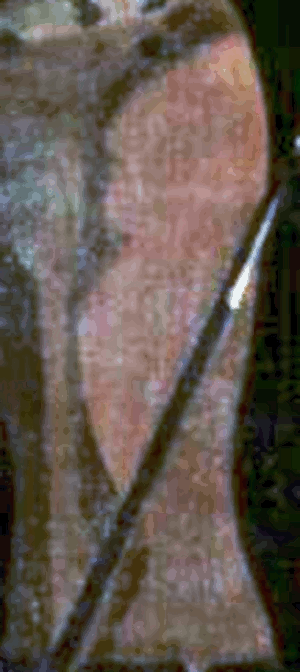
Retirement |
- Washington enjoyed less than three years of retirement at Mount Vernon.
- His family had an official tomb, but his slaves were all
buried in unmarked graves.
|
After the Revolution he wrote his mother, who had
suggested that she might wish to move to Mount Vernon,
that "in truth it may be compared to a well resorted
tavern, as scarcely any strangers who are going from
north to south, or from south to north, do not spend a
day or two at it. . . . What with the sitting up of
Company; the noise and bustle of servants, and many
other things you would not be able to enjoy that
calmness and serenity of mind, which... you ought now
to prefer" (15 Feb. 1787, George Washington
Papers, Library of Congress).
|
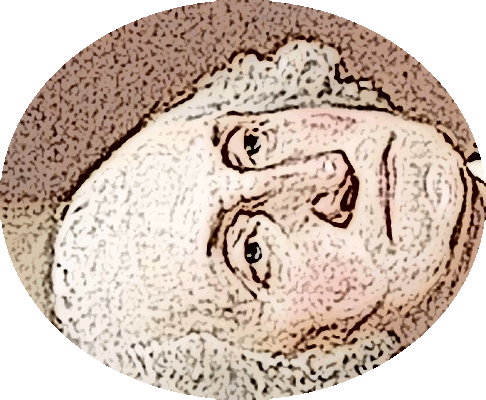
Retirement nap |
- President John Adams did call him back to service in 1798 as
commander-in-chief of a new army when war with France seemed
imminent, but the crisis passed before it was organized.
- He died of a throat infection December 14, 1799,
at age 67, and the nation mourned him
for months.
|
And put a knife to your throat if you are given to appetite.
(Proverbs 23:2)
|

Throat infection? |
- The real truth is that the reason for Washington's death was
hidden and has always been considered an 'unsolved mystery.'
- Two days before he died, on December 12, he was supervising
work in the snow which turned to rain, after returning home,
he went to dinner still wearing damp clothing.
- The next day, he complained of about a sore throat and his
symptons worsened, coughing and fever.
|
Jesus said to him, “I am the way, and the truth, and the life. No one comes to the Father except through me.
(John 14:6)
|
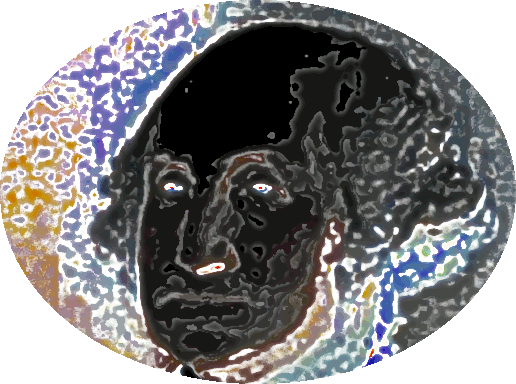
Death mask |
- When he awoke on
the 14th, he was clutching his chest and had profound
shortness of breath and he was having difficulty swallowing.
- Three doctors were summoned, including his personal
physician, Dr. James Craik.
|
My throat is dry like a broken vessel; my tongue is fixed to the roof of my mouth, and the dust of death is on my lips.
(Psalms 22:15)
|

Bloodletting |
- Over the next 12 hours, at
Washington's request, some of his blood was removed during a
process known as bloodletting apparently to lessen the
inflammation in the windpipe.
- In all, he was bled four
times, and lost 80 ounces of blood, roughly 40% and the
doctors became more desperate because it didn't work.
|
For the life of the flesh is in the blood, and I have given it for you on the altar to make atonement for your souls, for it is the blood that makes atonement by the life.
(Leviticus 17:11)
|
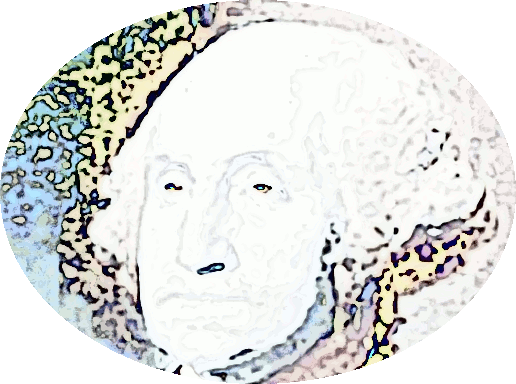
Blistered |
-
They gave Washington a mixture of molasses, butter and vinegar to
induce vomiting, which almost suffocated him and produced
blisters on his throat, and then they gave him an enema and
had him gargle with vinegar.
|
There they offered Jesus wine to drink, mixed with gall; but after tasting it, he refused to drink it.
(Matthew 27:34)
|

Washington's fine
laced throat |
- Washington became resigned
to his fate and he told Craik he did not believe his breathe
would last long.
- Jesus said that most men die in their
throats.
|
Instead, they gave me gall for my food, and for my thirst they gave me vinegar to drink.
(Psalm 69:21)
|
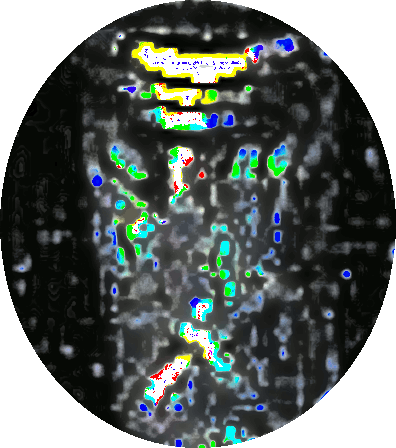
Not breathing |
- The final verdict that four doctors
agreed to was that Washington died of croup (cynanche
trachealis) but many have questioned their decisions and asked
why didn't they perform a tracheotomy to help him breathe.
- Many believe that his enemies, the Loyalists, poisoned him.
|
The most plausible explanation to emerge was
that Washington died of acute epiglottitis -- a
swelling of the lid of the windpipe that restricts
airflow.
(military.com)
|
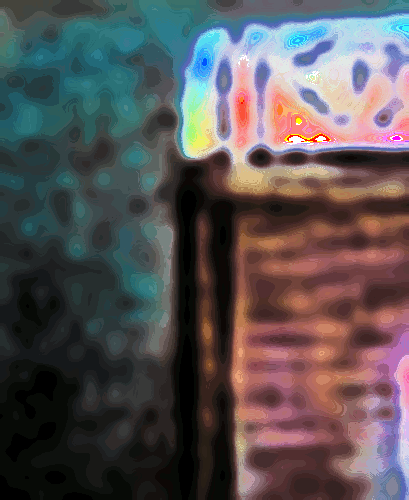
Tower |
- At Washington’s 1799 funeral, brothers of Alexandria Lodge performed Masonic rites.
- After Martha Washington’s death the lodge acquired many valuable items from the estate, including a Masonic apron sent from France in 1793.
- With these items and many curiosities, the lodge opened a museum in 1812.
|
In 1910 the George Washington Masonic National Memorial Association was formed. Then in 1932 the Association dedicated its great Masonic Memorial to Washington in Alexandria, Virginia. Today Alexandria-Washington Lodge No. 22 displays many of its valuable Washington artifacts and continues to meet there.
(mountvernon.org)
|
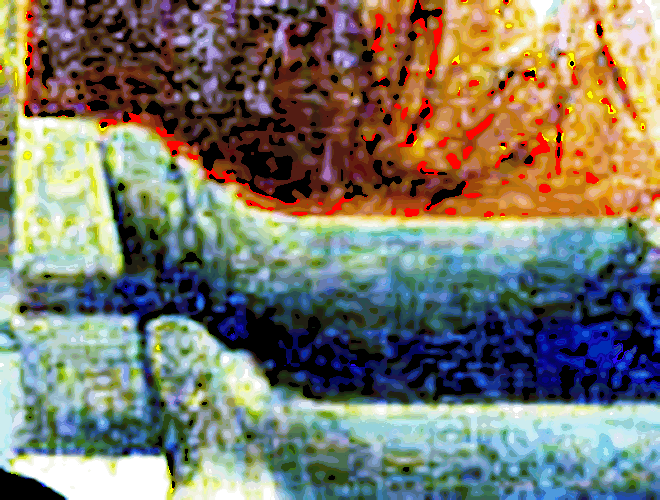
Tomb |
- The George Washington Birthplace National Monument
located at the confluence of Popes Creek and the Potomac River.
- Birthplace of George Washington.
- Burial place of
paternal great-grandfather, John Washington (1633–1677)
who settled the plantation in 1657 at the original family property on Bridges Creek.
- The monument is 38 miles (61 km) east of Fredericksburg, Virginia, located on the Northern Neck.
|
None is righteous, no, not one;
no one understands;
no one seeks for God.
All have turned aside; together they have become worthless; no one does
good, not even one.
Their throat is pan open grave;
they use their tongues to deceive.
The venom of asps is under their lips.
Their mouth is full of curses and bitterness.
Their feet are swift to shed blood;
in their paths are ruin and misery,
and the way of peace they have not known.
There is no fear of God before
their eyes. (Romans 3)
|

Flag |
- Washington's will, executed in 1800, lists 52,194 acres to be sold or distributed in Virginia, Pennsylvania, Maryland, New York, Kentucky, and the Ohio Valley.
- He also held title to lots in the Virginia cities of Winchester, Bath (now Berkeley Springs, West Virginia), and Alexandria, and in the newly formed City of Washington.
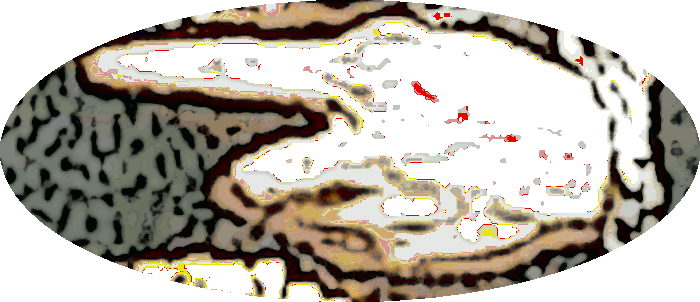
Freedom eventually |
-When one of Martha's female slaves fled to freedom in 1796, Washington spent the last three years of his life trying to force her to return.
- By the time Washington died, he owned 123 enslaved people.
- Martha freed just one person, a Revolutionary War
hero, but she didn’t free the others until she became convinced that they were plotting against her.
- After at least one fire
was started, and a rumor that a slave wanted to poison her, she freed the rest of
Washington's slaves about a year after his death.
- In January 1801, they left Mount Vernon as free men and women
but Martha held on to her Custis slaves until the end of her
life.
|
In the words of historian Henry Wiencek, his contradictory attitudes towards slavery are “one of the mysteries of his life.” Those contradictions made it into his will, too. Though the will contained the unheard-of order to free his enslaved workers, it stipulated that they remain with Martha for the rest of her life.
(history.com)
|

Still enslaved |
-
The 153 enslaved people who Martha had inherited weren’t so lucky
as they were divvied up between her children when she died in 1802.
- None of Martha’s children freed more than a few of the slaves or their children during their lifetimes
and Martha never freed the single enslaved man she owned outright, even willing him to her grandson.
- Washington's views on slavery may have been advanced, but his family apparently did not share them.
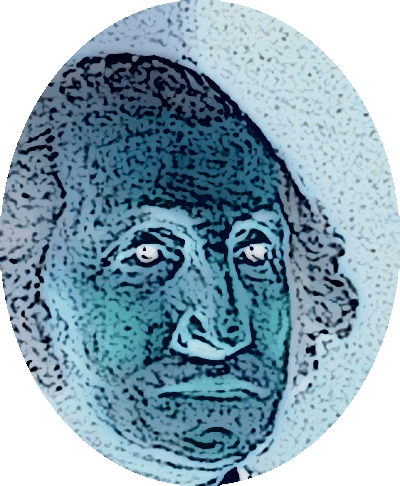
Grim men |
- By the 1790s, elite men were losing their coveted
spots in political leadership; for example, the first
governor of Virginia after independence was not a
member of the gentry.
- Elite families found
themselves deeply in debt, unable to pay back their
creditors, but still making purchases on the latest
styles and trends to maintain their gentility.
- The second
generation of gentry had inherited a great blessing
from their fathers but may have not inherited the same
business aptitude.
|
By the
1790s, the gentry found their affluent lifestyle to be
disappearing. How could this prestige melt away in
such a short time? Had their fathers and grandfathers
failed them?
(Celina Morgan, As Worthless as an Eldest Son Could
Be)
|
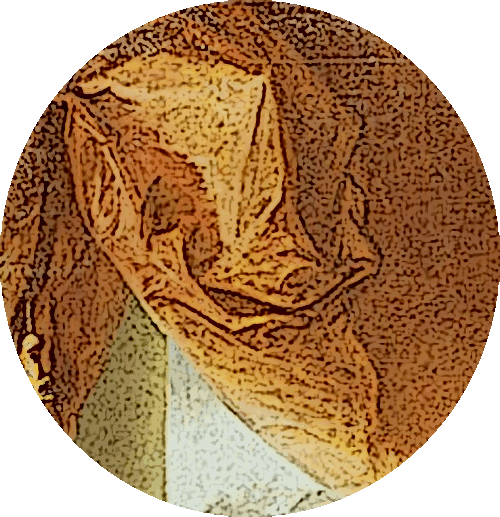
Dino |
- The third-generation gentry class failed
to live up to the lives of their fathers and grandfathers and were unable to save their families or their
plantations from the many problems they faced.
- While
their decline was largely due to their own
shortcomings, the third generation did inherit a
terrible economic situation unfamiliar to their fathers.
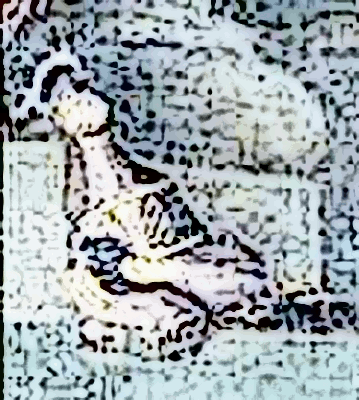
Virginia Company captive |
- The debt they inherited and contributed to became so
large it was completely unbearable and impossible to
repay.
- Although
they did what they thought was best, they were unable
to pull themselves out of difficult times, as a new
emerging elite took their place on history’s main stage.
- Just because a man was
the eldest son did not bestow upon him the ability to
run an estate.
|
Overall, the young gentry men were unwilling and
stubborn to change. They were determined to be
successful tobacco planters and live the lives of their
fathers and grandfathers. As they faced increased debt
they failed to live a more modest lifestyle and
drastically cut back on their spending. And as the
Revolution changed the identity of the colonies, it also changed the gentry’s world and presented them with
new insurmountable challenges.
(Celina Morgan, As Worthless as an Eldest Son Could
Be)
|
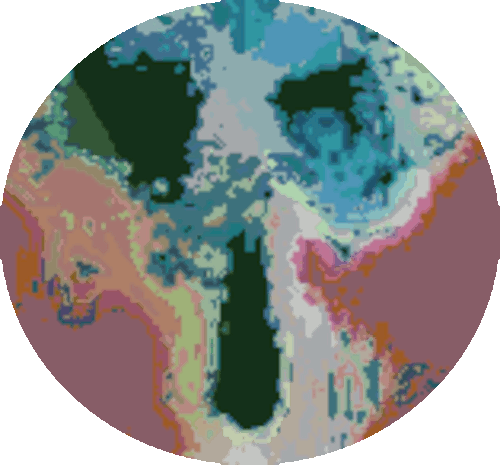
USS George
Washington Bridge |
-
After a series of suicides, the USS George Washington returns to sea with more mental healthcare.
- See aboard USS George Washington, an aircraft carrier with a checkered recent history.
- Family of USS George Washington sailor who died by suicide files $60M lawsuit.
- A Suicidologist’s New Challenge: The George Washington Bridge.
- Gordon Ramsay responds to 'Kitchen Nightmares' suicide.
- 2,100 Days: Aircraft Carrier USS George Washington 'Did Nothing' for 6 Years.
|
The parents of a young jazz singer who jumped to her death off the George Washington Bridge last year brought a $100 million lawsuit against the Port Authority for not installing enough protective barriers on the “suicide magnet” structure.
(courthousenews.com)
|
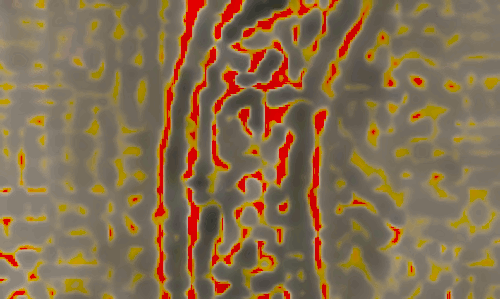
George Washington
Memorial Jumper's Bridge |
- Seattle's George Washington Memorial Bridge (Aurora Bridge) is dedicated on February 22, 1932.
- It's a cantilever bridge,
meaning, the center span is suspended like a clothesline between two supporting spans (the cantilever spans), which are in turn supported by anchor spans.
- The piers are set on underground pilings of Douglas fir logs which are in turn set on gravel, sand, and clay under Lake Union
as there's no bedrock there.

Seattle ghost |
- The bridge was designed by the Seattle engineering firm
Jacobs and Ober, whose principal engineers were Major Joseph
Jacobs (d. 1942) and Captain Ralph Ober (1871-1931).
|
Tragically, Ralph Ober died on August 30, 1931, at
Virginia Mason Hospital the age of 60 of a "brain
hemorrhage." "Death came," reported the Seattle
Post-Intelligencer, "as the greatest monument to his
engineering genius, the high bridge over Lake Union,
is rapidly nearing completion."
(historylink.org)
|
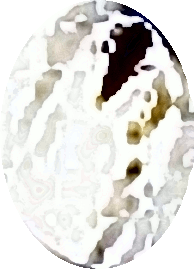
Washington ghost
suit |
-
Washington's historic bedchamber is haunted and many people
who have slept in the room declare that they were awed by the
ghostly presence of the nation’s first President.
- Upon Quincy III’s arrival at Mount Vernon, Bushrod Washington assigned his guest to the Washington’s bedchamber, “the chamber in which his uncle had died.”
- Quincy Jr. believed that Washington's ghost came back
because others were handling his material goods.
|
Quincy hints at a possible cause for George Washington’s ghost to be lingering at Mount Vernon, explaining that the “velvet cover of the coffin was hanging in tatters, it having been brought to this condition by the assaults of relic-hunters.” Quincy concluded by quoting Ralph Waldo Emerson’s aphorism, “‘Care not to strip the dead of his sad ornament,’” because “of all fetiches [sic], with which the imagination contrives to associate the august spirits of the great,” Quincy claimed, “such miserable shreds and patches are the most vulgar.”
(mountvernon.org)
|
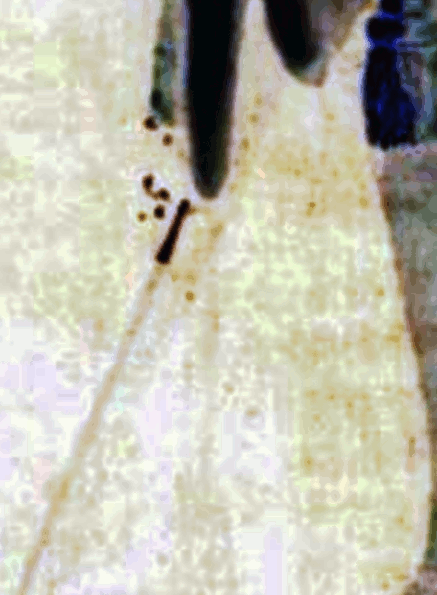
Female ghost on
stairs |
- In the
1980s, a visitor saw the figure of an unidentified woman, dressed in 18th-century clothing, on the stairs
at Mount Vernon carrying a large punch bowl filled with a flower arrangement.
- The figure disappeared upon reaching the bottom of the staircase.
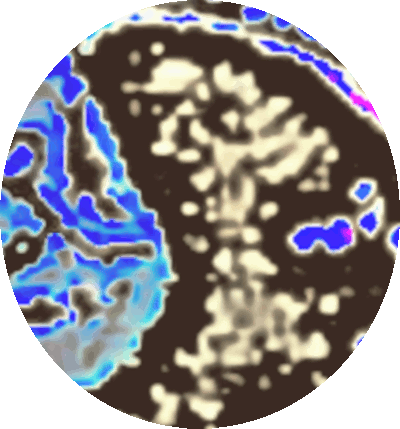
Angry gentleman |
- In 1985, an interpreter n the central passage at Mount
Vernon heard a noise in the room behind her where visitors
weren't allowed.
- She entered the Little Parlor and found
an older gentleman who had a large mustache and was dressed in
late 19th or early 20th-century clothing, with his sleeves
rolled up and secured with garters.
|
When he saw that he had her attention, he shouted, “What the hell is going on here?”—a reference to the noise a school group or groups were making. The interpreter told him that she was trying to quiet them down and then the man disappeared. She later saw a portrait of the gentleman in question, Colonel Harrison Howell Dodge, Mount Vernon’s director for about 50 years until his death in the late 1930s.
(mountvernon.org)
|

Mount Vernon keys |
- On the anniversary of General Washington’s death in 2012, around 10:30 pm,
after Mount Vernon had been cleared, a staff member locked the
doors and was checking alarms.
- Upon entering the Mansion Study,
they heard a heavy set of keys being walked across the floor in the Washington Bedchamber directly above.
- As they approached the backstairs to go up to the bedroom, the sound of the keys abruptly stopped.
- Sheel (Scottish)
to shell or take the husk off of (something).
|
It was well known that General Washington carried a heavy set of keys and that they could be heard as he walked through the house. Tobias Lear, the General’s secretary, is known to have taken the keys from the General’s pocket upon his death in order to hand them over to his enslaved manservant Christopher Sheels.
(mountvernon.org)
|
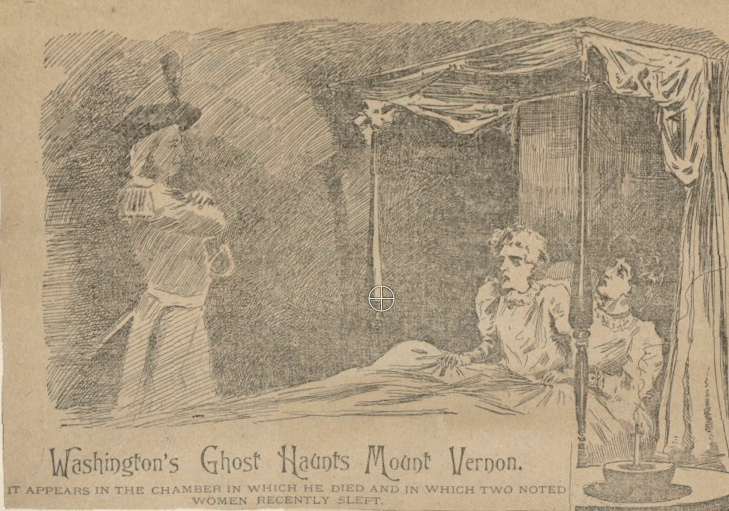
1890 |
- There are many more stories about ghosts and ecotoplasm
that linger at Mount Vernon.
- In 1979, a Mount Vernon
monster was reported when for nine months nocturnal screaming
(eerie, muted wails) came from a patch of woods a mile from
the home that sounded like someone being strangled.
|
When sorrows come, they come not single spies, but in battalions. (Shakespeare)
|
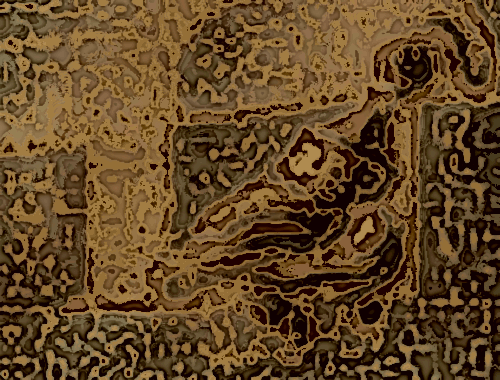
1890 bedchamber |
- Strange noises in Washington's bedchamber one night on
the anniversary of his death in 2017 and the next day the
temperature in the room dropped 20 degrees and an electric
candle in Martha's new bedroom on the 3rd floor was turned on
(where she moved the day George died).
- Martha's new
bedroom, the Yellow Room, has had several occurences where the
pressure of someone's hands on their back pushes them through
the room.
|
As the little birdie just said, you have to pay Peter
so he can pay the piper so he can rob Paul.
|
|
The Land of Oz |

Magical country |
- The Land of Oz is a magical country introduced in the 1900 children's novel
The Wonderful Wizard of Oz written by L. Frank Baum and illustrated by W. W. Denslow.
- King on the ground and Wizard in the air.
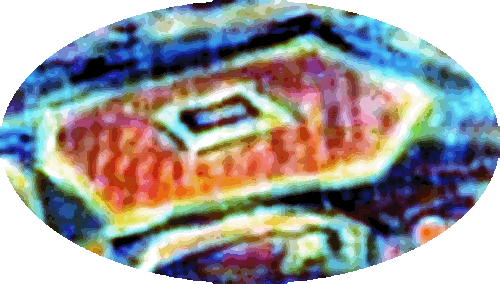
The Land of Oz |
- The Land of Oz consists of four vast quadrants, the Gillikin Country in the north, Quadling Country in the south, Munchkin Country in the east, and Winkie Country in the west.
- Each province has its own ruler, but the realm itself has always been ruled by a single monarch.
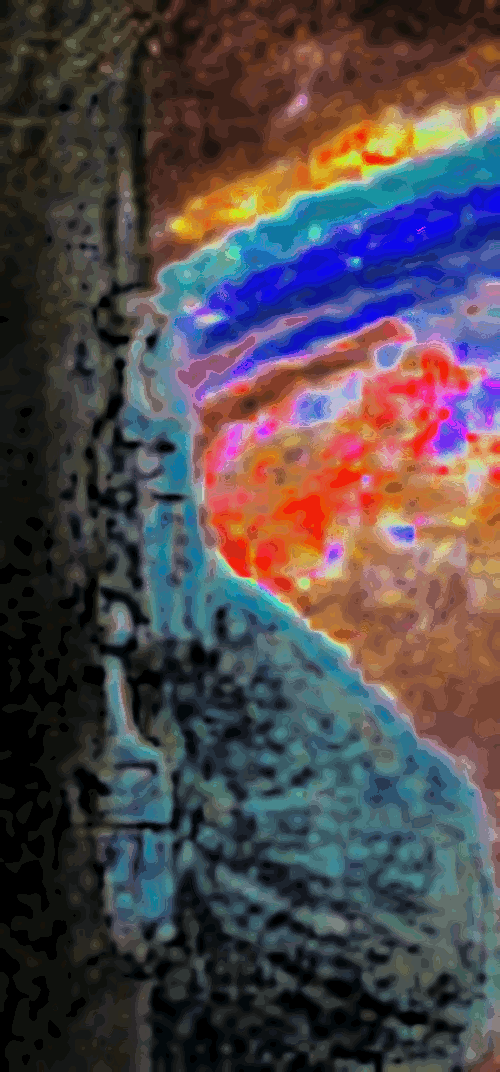
Wizard of Oz |
- According to Dorothy and the Wizard in Oz the ruler
has mostly either been named Oz or Ozma.
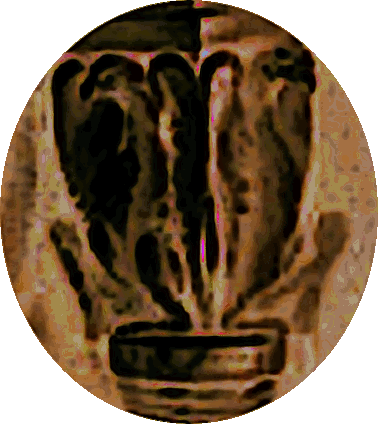
Tin
woodman |
- Nick Chopper, the Tin Woodman, is a character in the fictional
Land of Oz.
-
The Tin Woodman, who longs for a heart; he is kind and gentle, but
because he lacks a heart, he is unable to feel emotions.
|
According to some historians, Baum and W.W. Denslow, the book’s illustrator, drew from popular political cartoons of the time, in which tin-clad men were prominent symbols for the dehumanizing aspects of industrialization. And this isn’t even the wildest socioeconomic read of the book; my partner remembers an econ professor telling her class that the yellow brick road represented the gold standard.
(jackcheng.com)
|
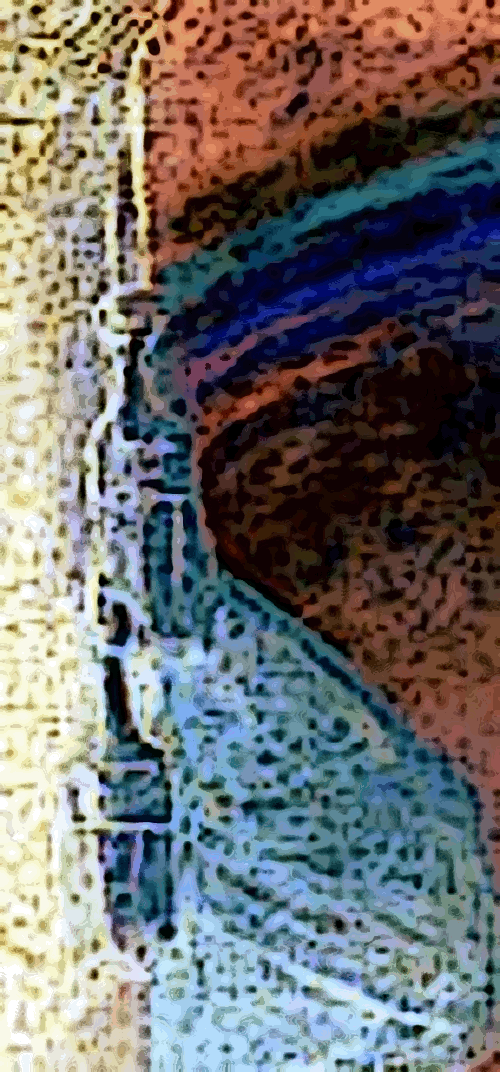
Wicked Witch of the
East |
- In the book version of The Wonderful Wizard of Oz the Tin Man reveals that he was once human.
- He was in love with a beautiful young girl, but the Wicked Witch of the East did not approve of the match.
|
Baum is said to have been inspired to create the Tin Man character after seeing a window display featuring a mannequin dressed as a tin woodsman at a store in New York. He was also inspired by the folktale of The Emperor's New Clothes, in which a vain ruler is convinced to wear a suit of clothes that he is told are invisible to those who are unworthy of their positions. In the story, the Tin Man represents the character who is honest and true, despite lacking in certain qualities.
(study.com)
|

Animated tin leg. |
- The witch put a curse on the Woodman’s ax and it slipped and cut off his leg.
- Fortunately a nearby tin smith gave the Woodman a new leg, and since Oz was a magical land, it was an animated tin leg.
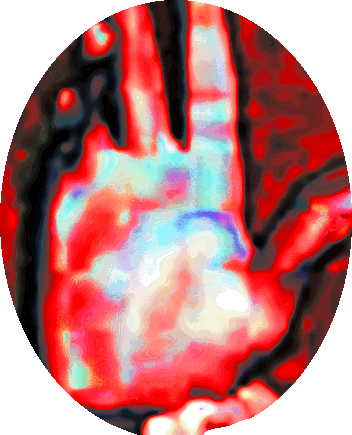
Heart needed |
- The cursed ax cut off more parts of the Woodman’s body, and he was completely rebuilt as a Tin Man, but the tin smith never gave him a heart.
- That was later remedied by the Wizard.
|
It is good not to eat meat or drink wine or do anything that causes your brother to stumble.
(Romans 14:21)
|
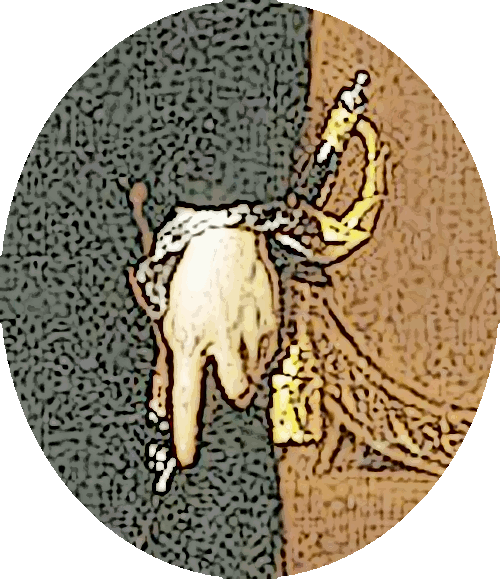
Curse on his sword |
- In a later Oz book, the Tin Woodsman meets a Tin Soldier who had a similar story.
- He had been in love with the same beautiful girl, but the Wicked Witch of the East put a curse on his sword, and the sword cut off the limbs of his body, which were replaced by tin limbs from the tin smith.
|
For all have sinned and fall short of the glory of God.
(Romans 3:23)
|

Tin Soldier
|
- The Tin Woodsman and the Tin Soldier decided to seek out the beautiful girl they had loved.
- They found her happily married to…the both of them.
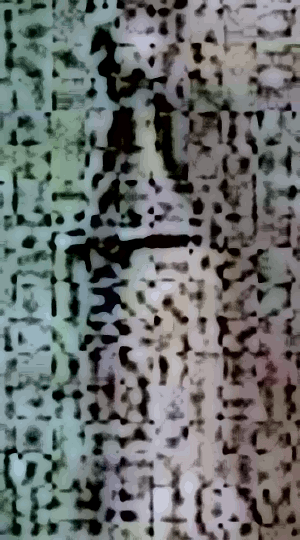
Composite person |
- When the Tin Woodsman and the Tin Soldier had been chopped up by evil magic, a good wizard gathered their body parts and sewed them all together to make a new, composite person from the Woodsman and the Soldier.
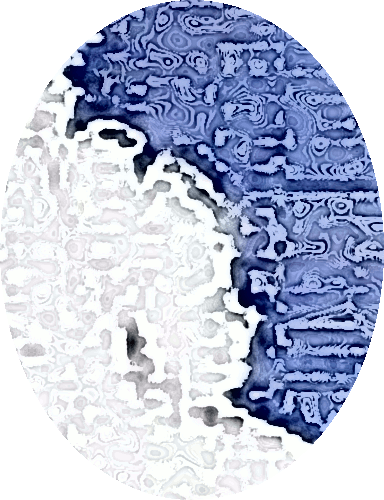
Beautiful girl |
- Because this composite man had attributes of both of her lovers, the beautiful girl married him.
|
For as in Adam all die, so also in Christ shall all be made alive.
(1 Corinthians 15:22)
|

Cowardly lion |
Moral of the story!
George certainly had some moral issues that he
began to resolve as he aged, like most of us.
He did finally resolve to help all of us very
magnificently.
His biggest problem was that he never left his
father's church and then let another 'organization'
that didn't even believe in Christ rule his life.
So at that point, it doesn't matter how 'nice' he
was or how many works he performed.
And none of this judgment was from Christ, who
apparently never really knew him, it was from YHWH,
the accuser who lives in the lower ego.
It's all out there, nothing needed to be
researched, just compiled, there's just an
overwhelming amount of 'evidence' and we all excuse
our father's sins, but we need to see them first.
Realizing what that means for America, who needs
to forgive the sins of her fathers and throw them out
with the bath water; start over the right way in love
and peace, realizing we are all human and sinners.
Separation of church and state, never, since
everything is intertwined.
So now that the reincarnated George has woken up,
hopefully he won't make that one fatal mistake.
|
|
In their case the god of this world has blinded the minds of the unbelievers, to keep them from seeing the light of the gospel of the glory of Christ, who is the image of God.
(2 Corinthians 4:4)
|

Apple meet cherry |
- What we know so far, one of them was eating apples and the
other one was chopping down cherry trees.
- History Dish: Martha Washington’s Ale and Apple Fritters.
|
|
A man's intentions should be allowed
in some respects to plead for his actions.
George Washington

|

